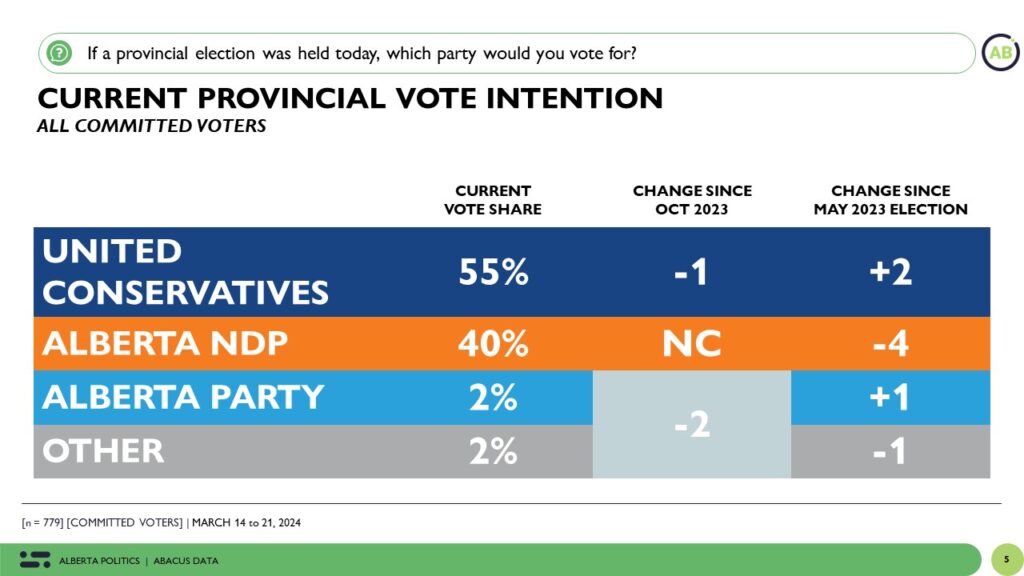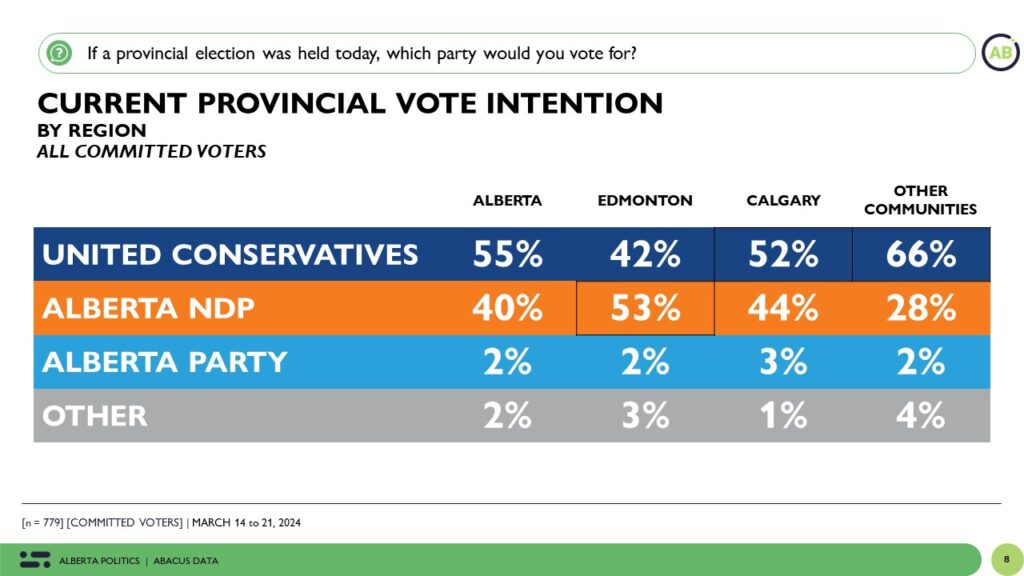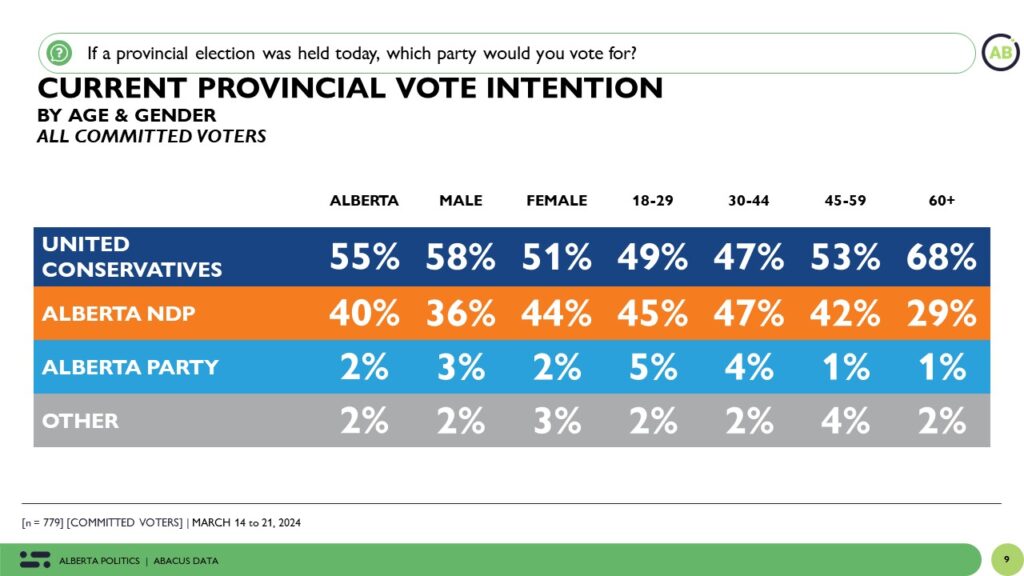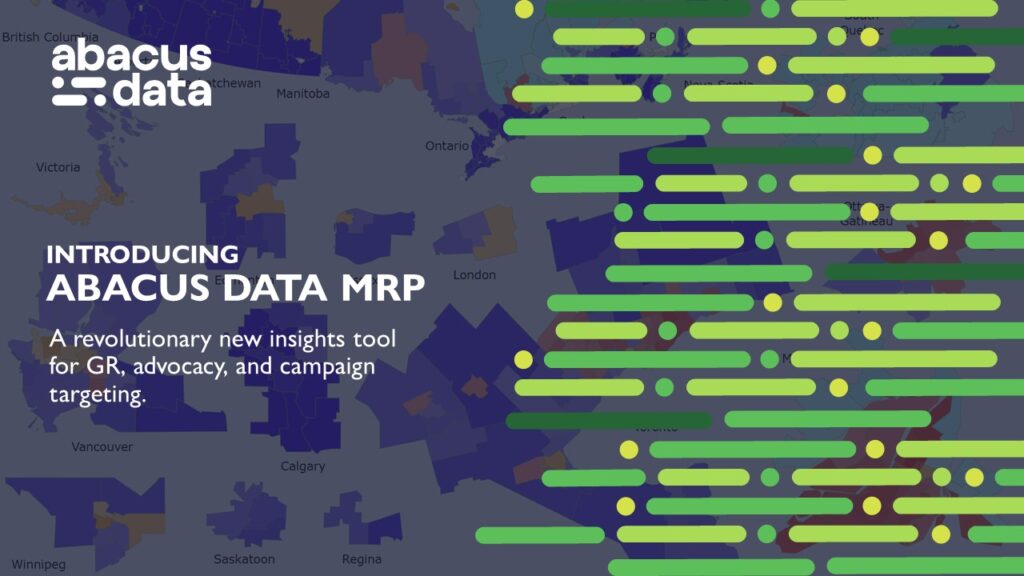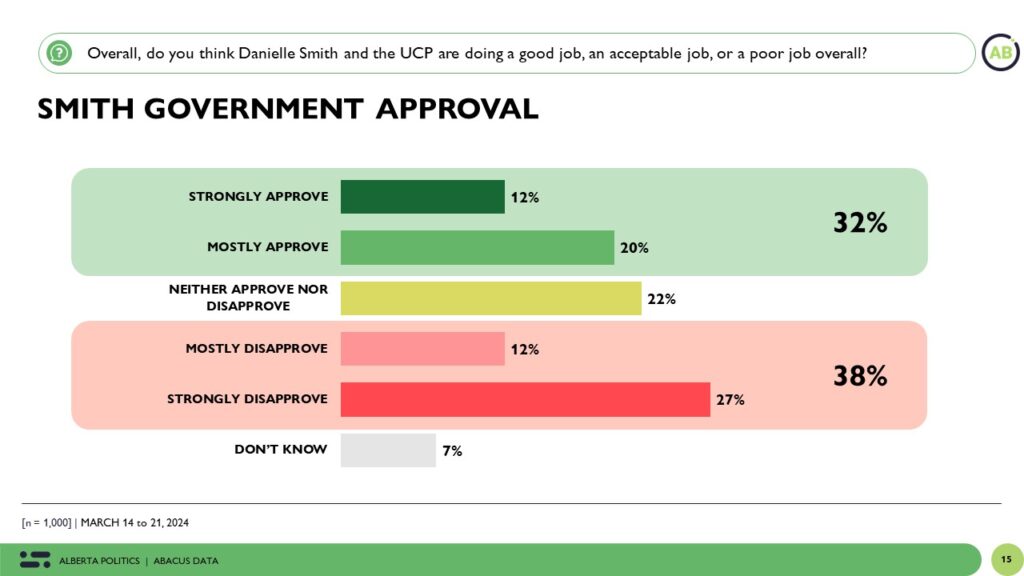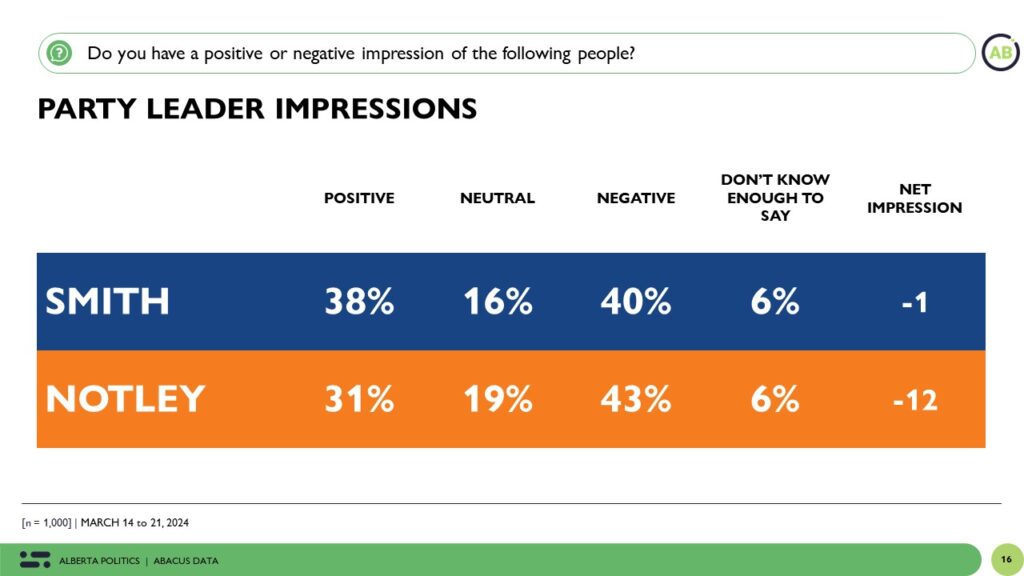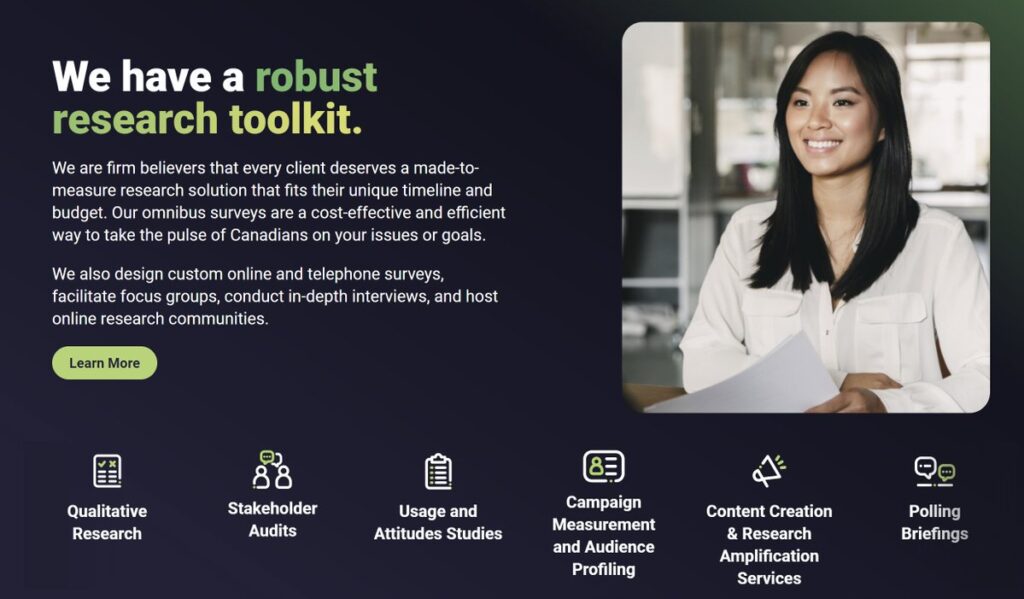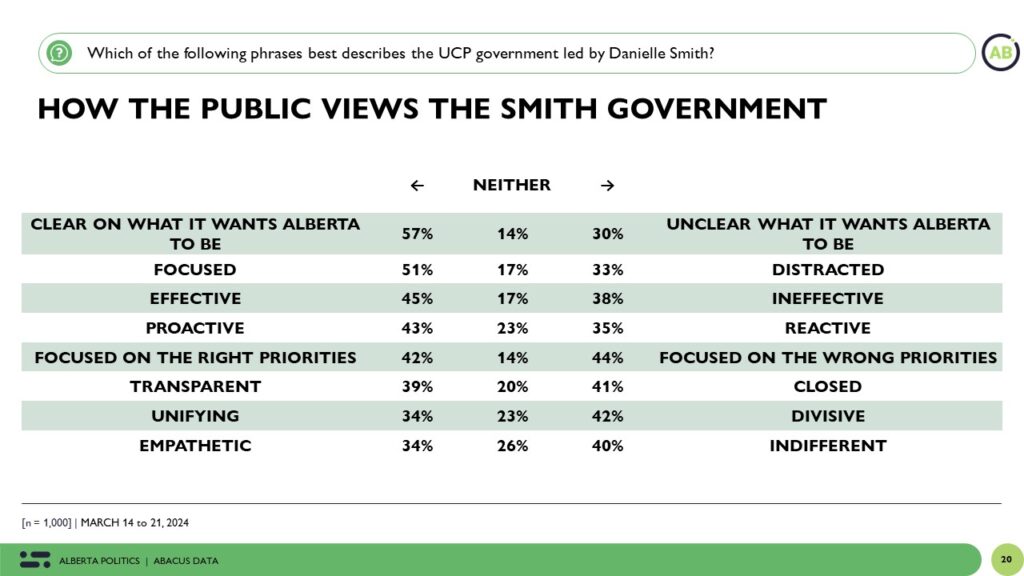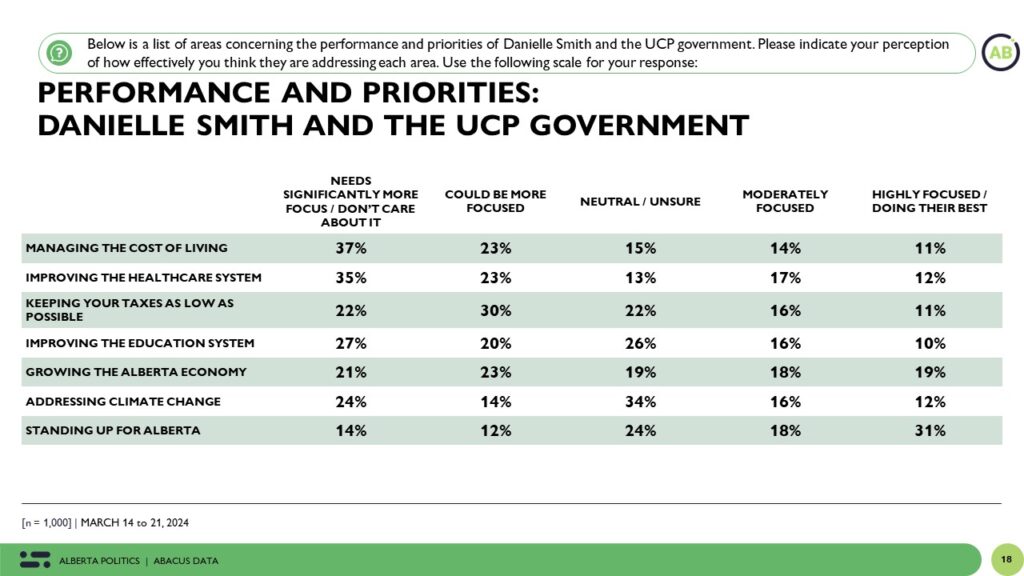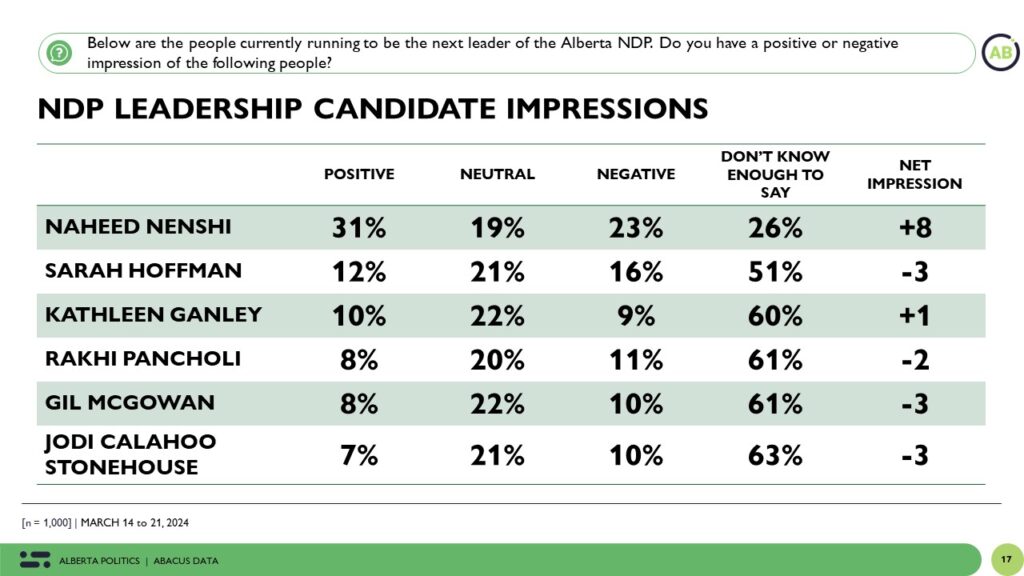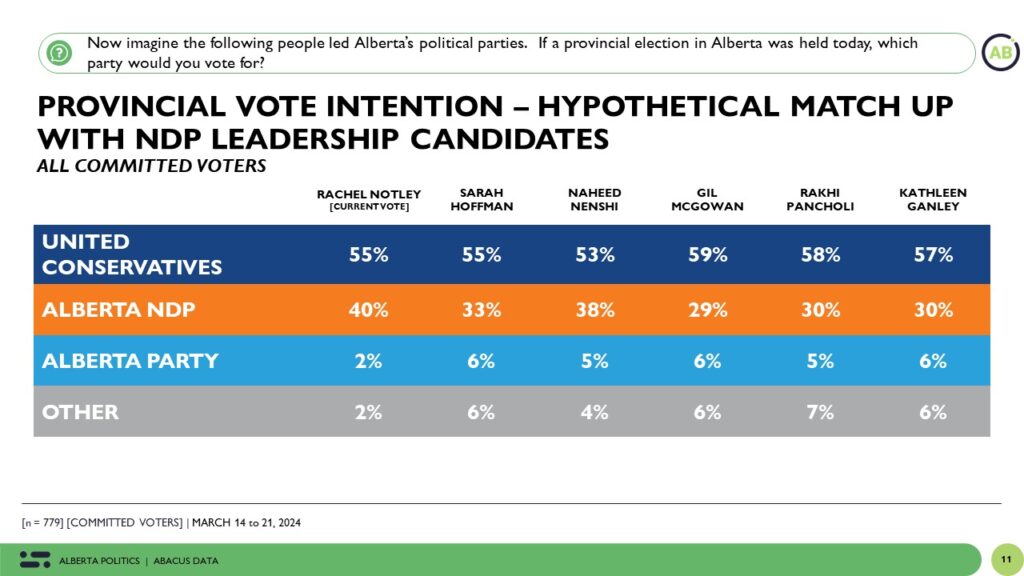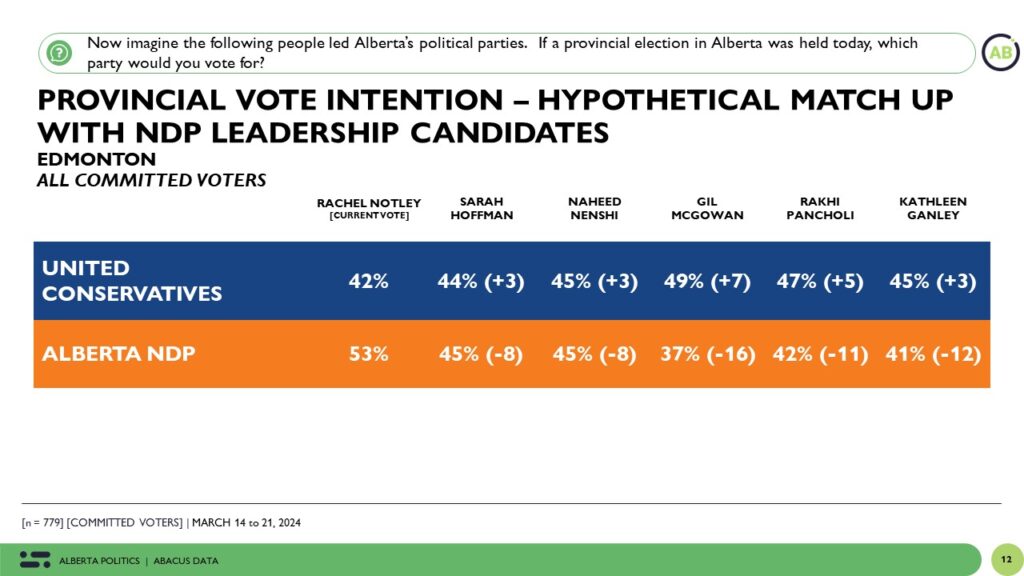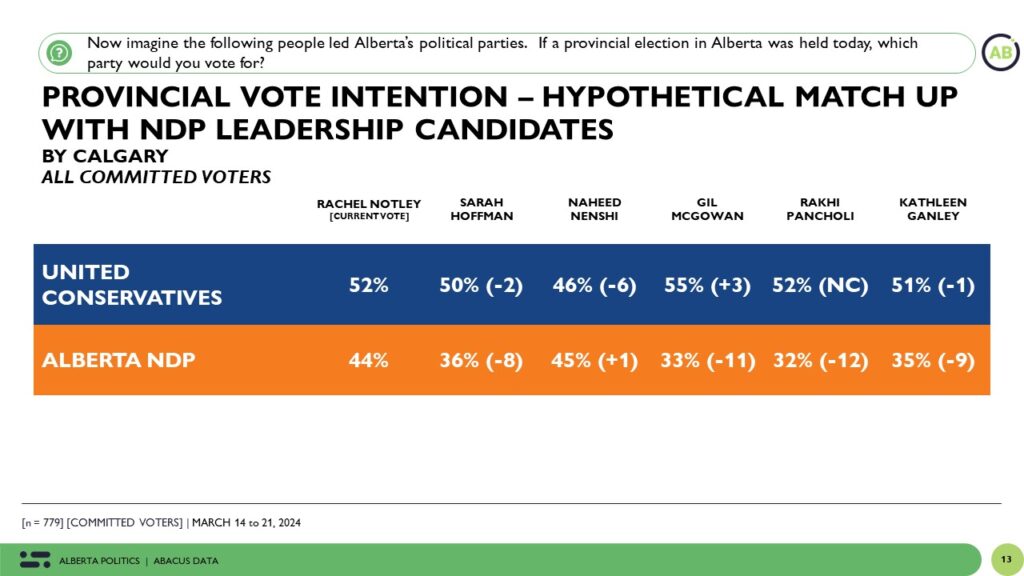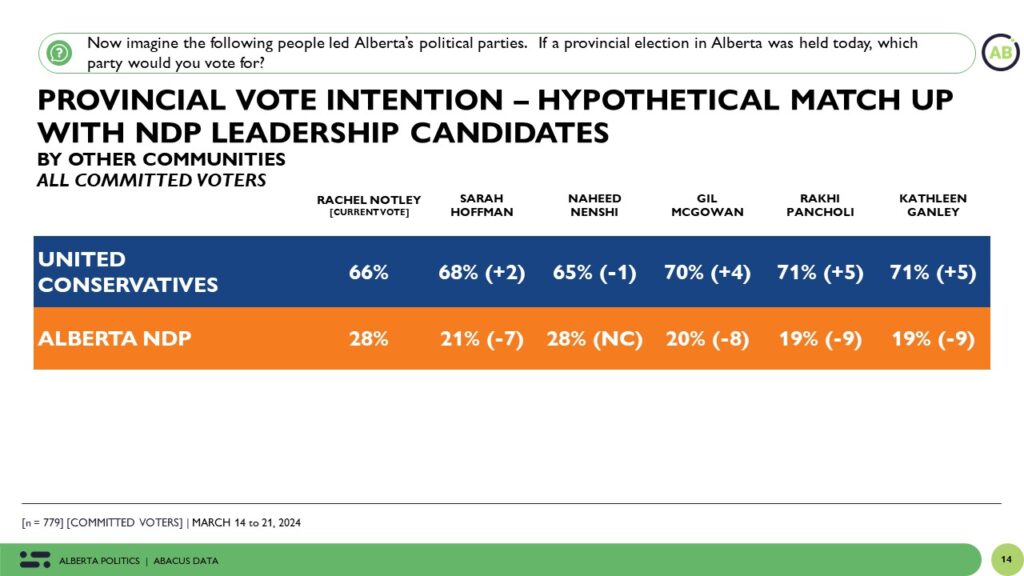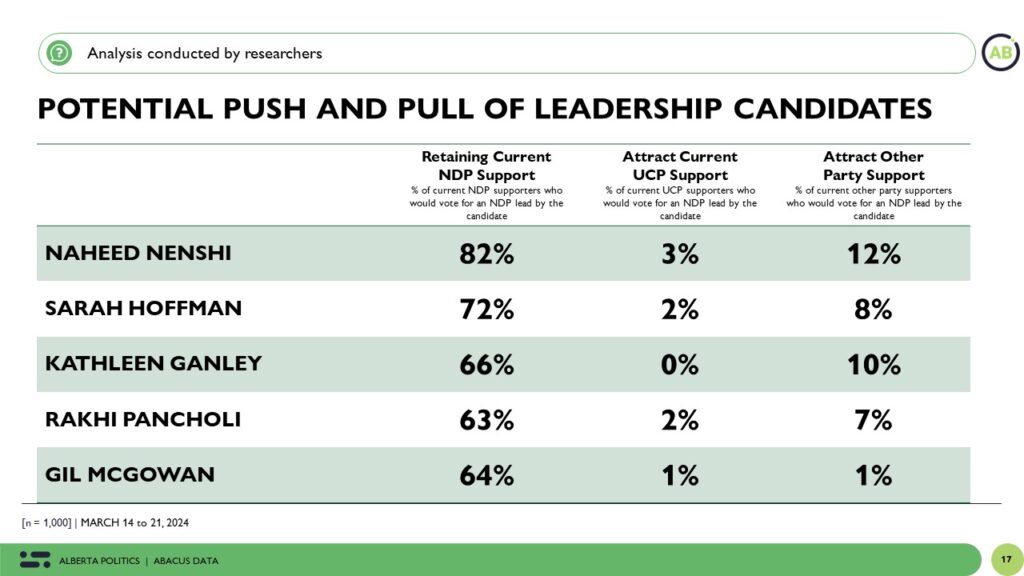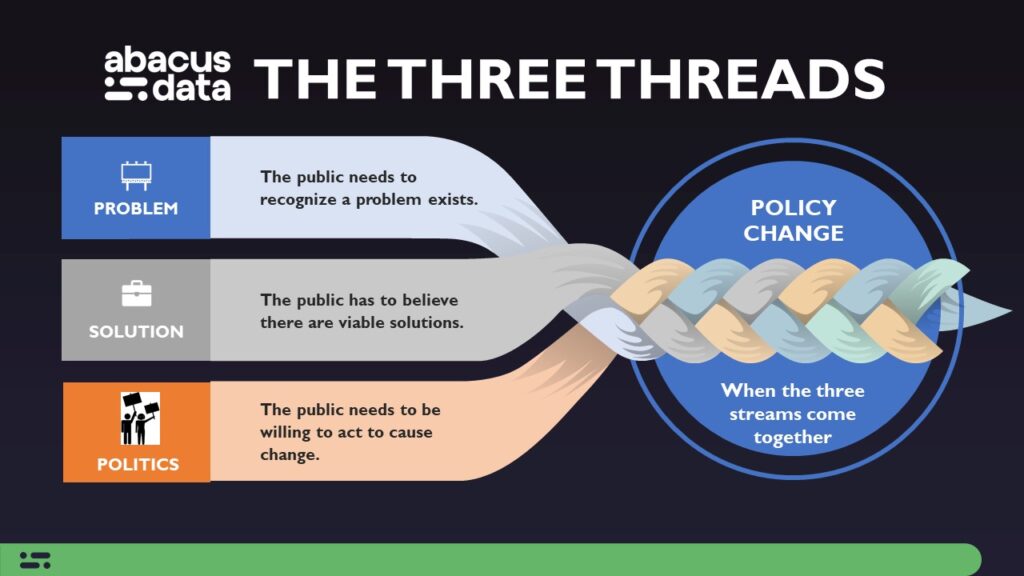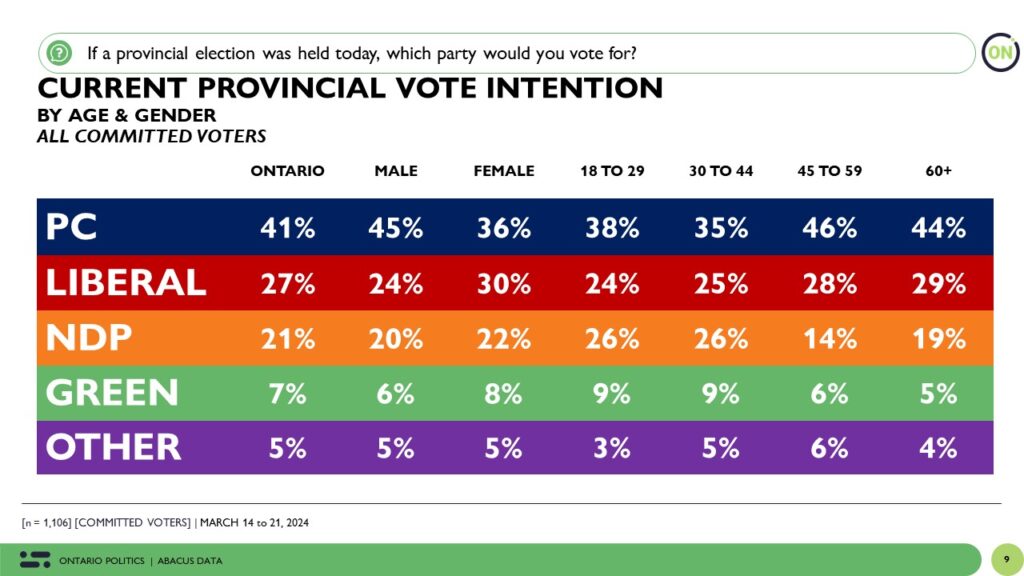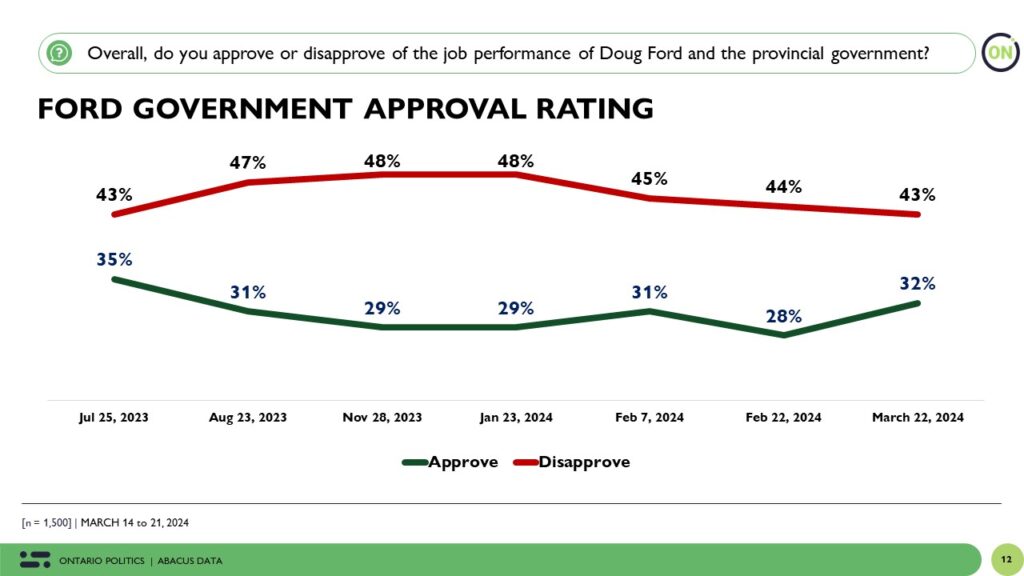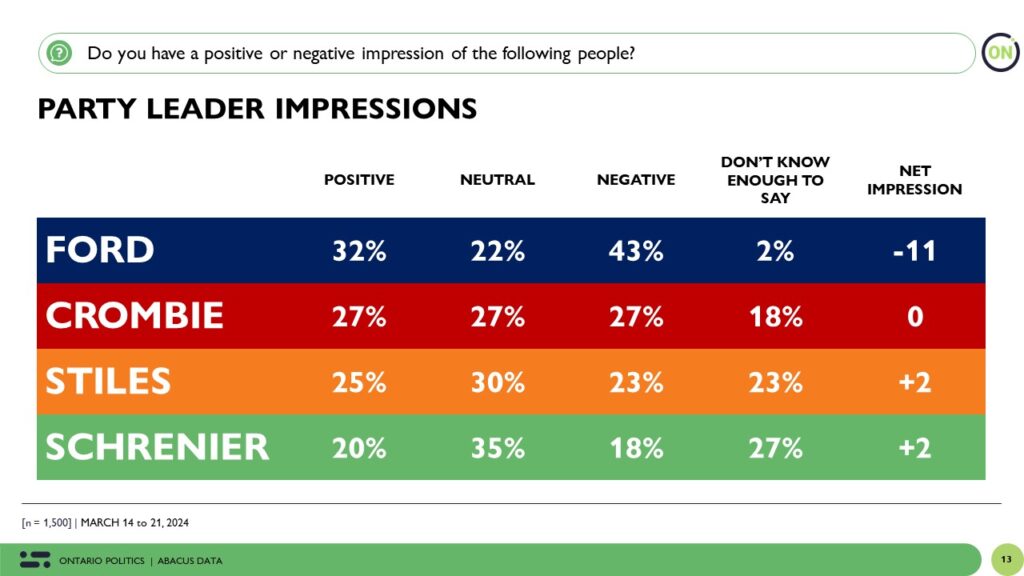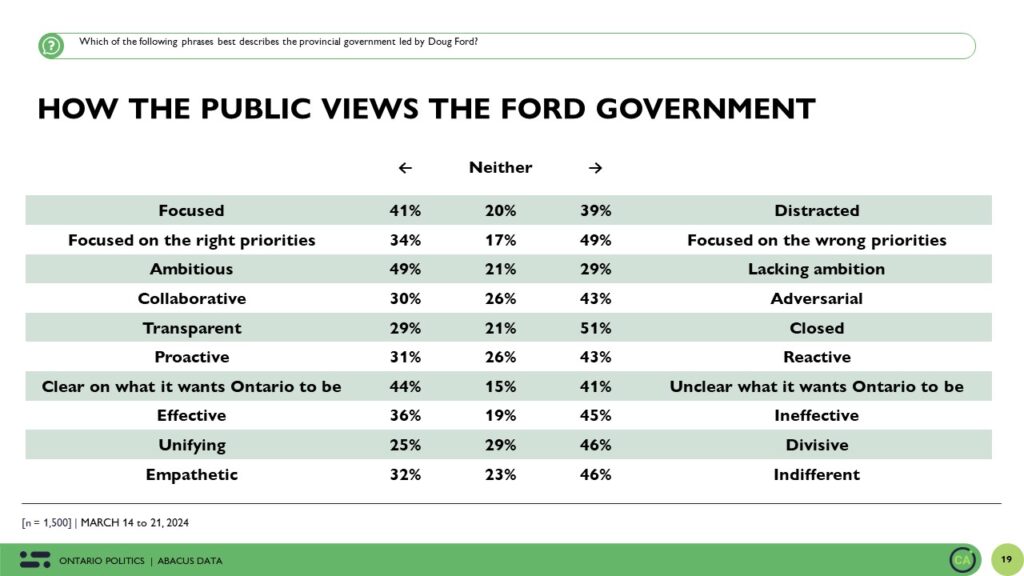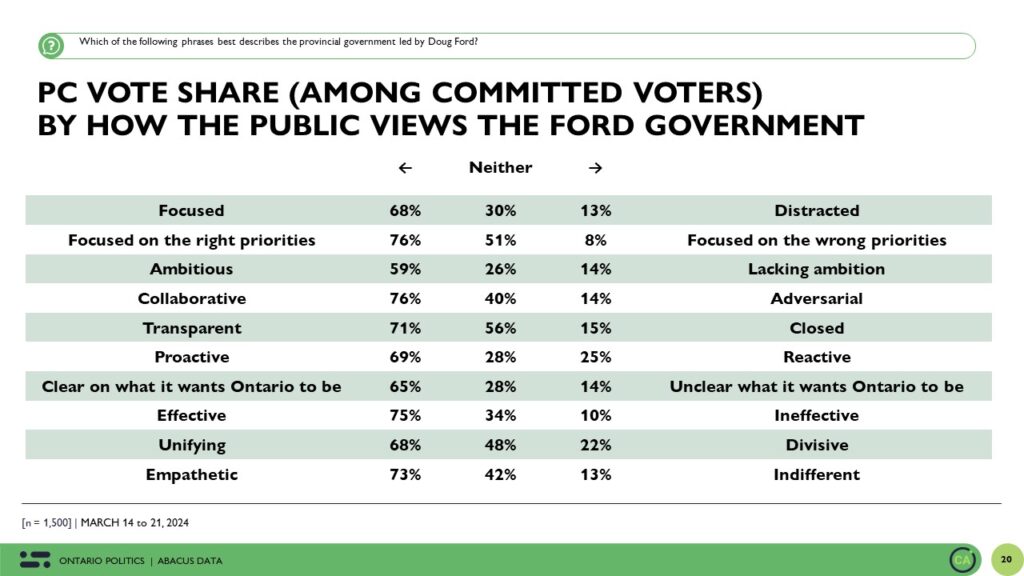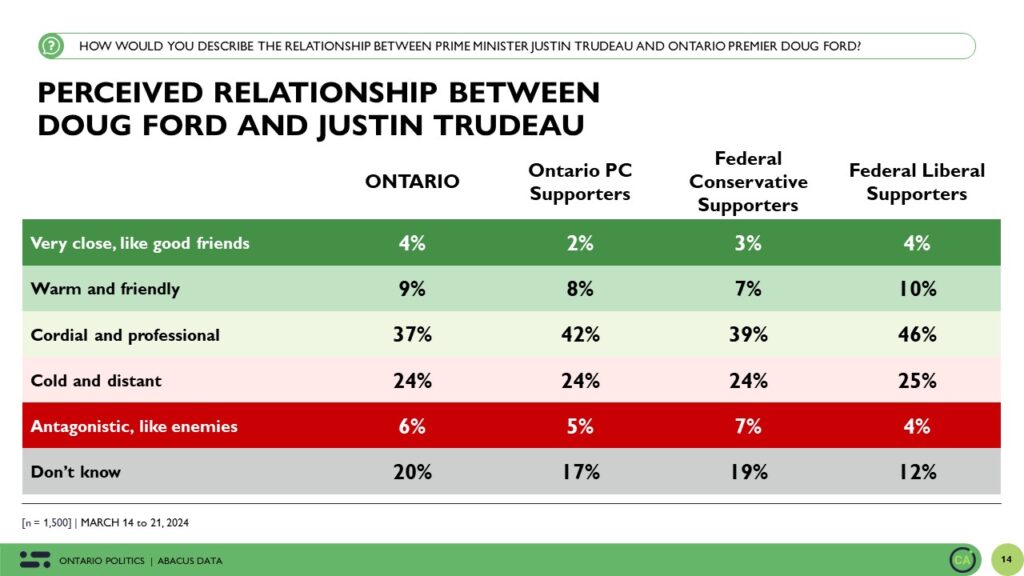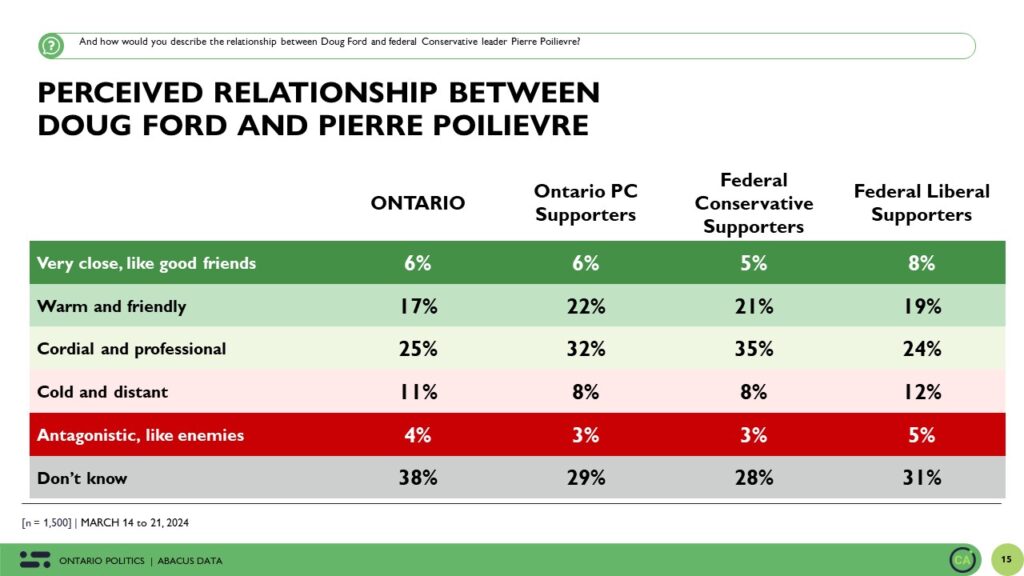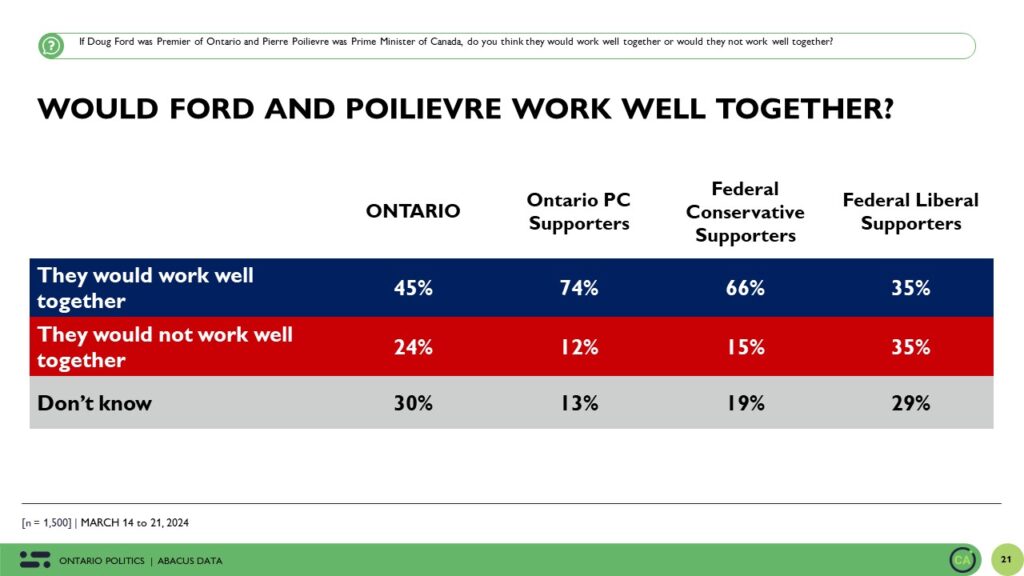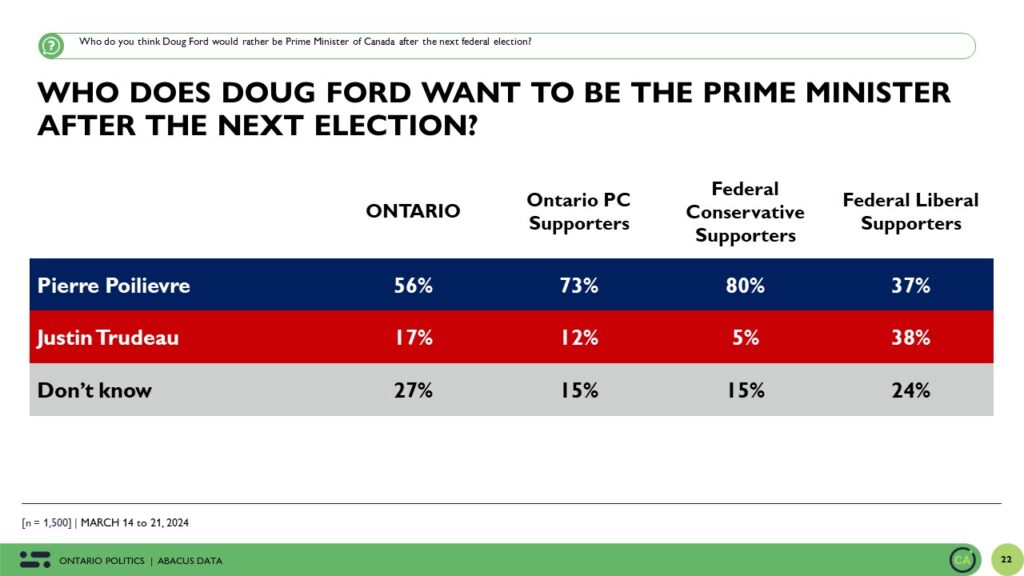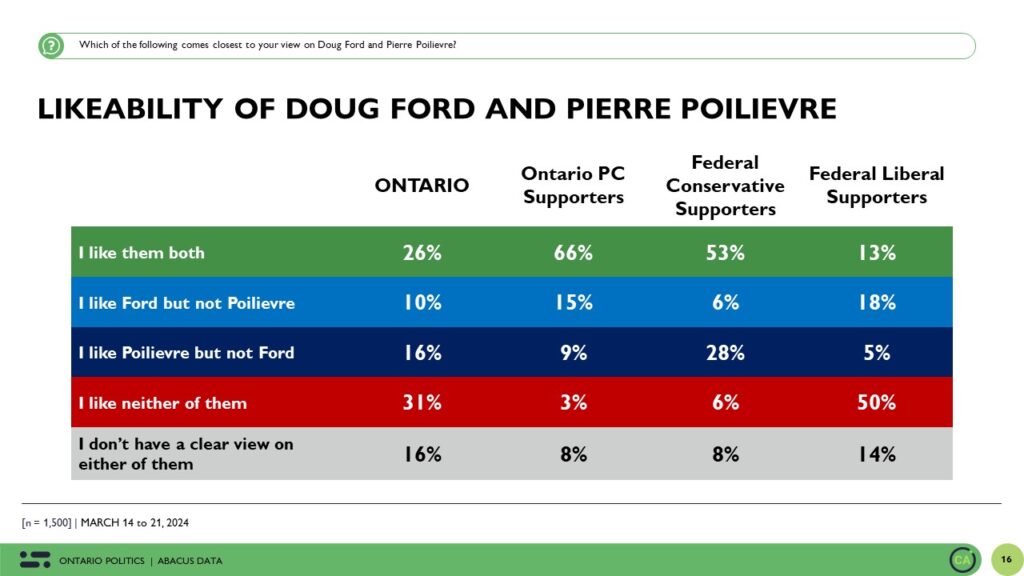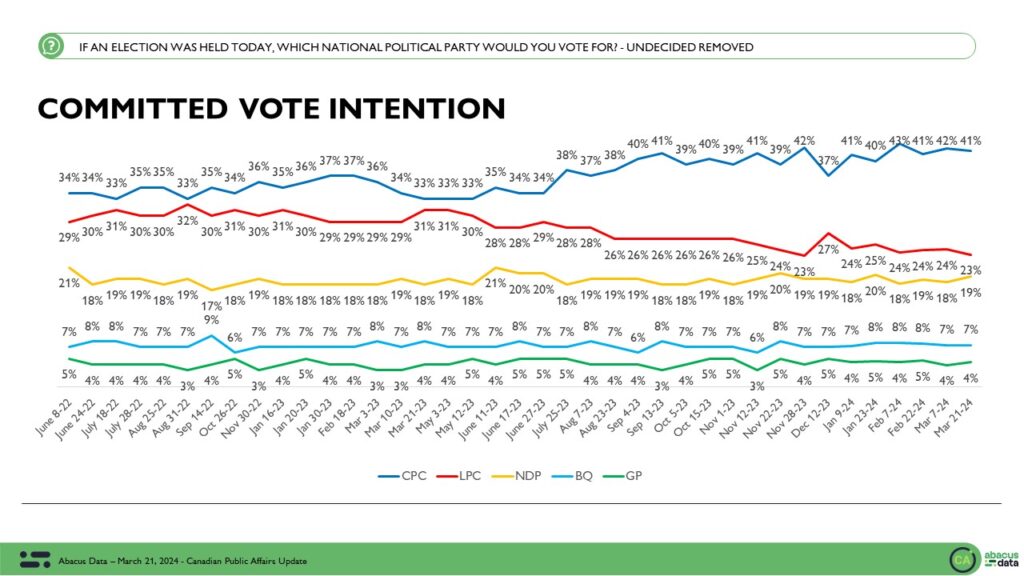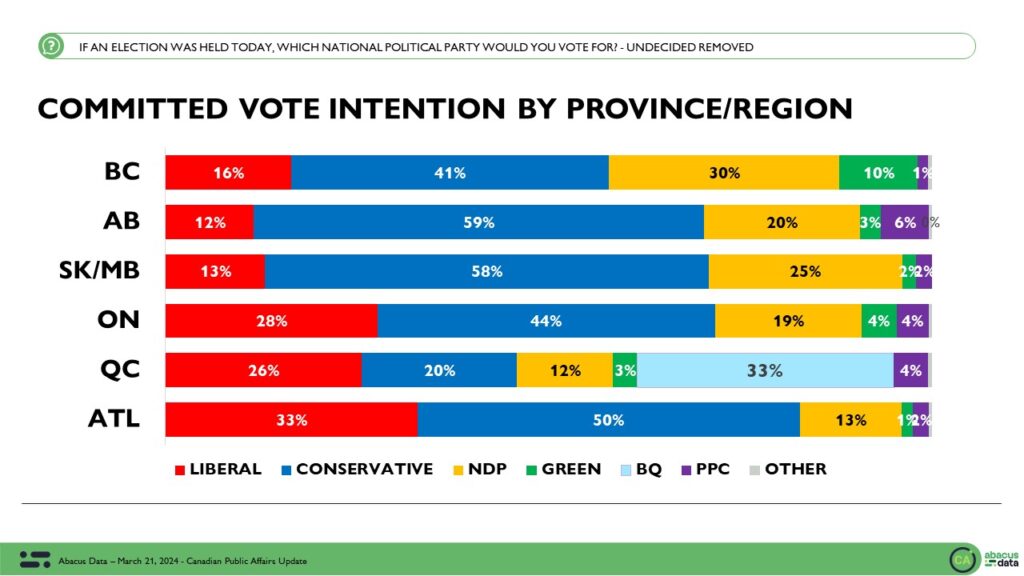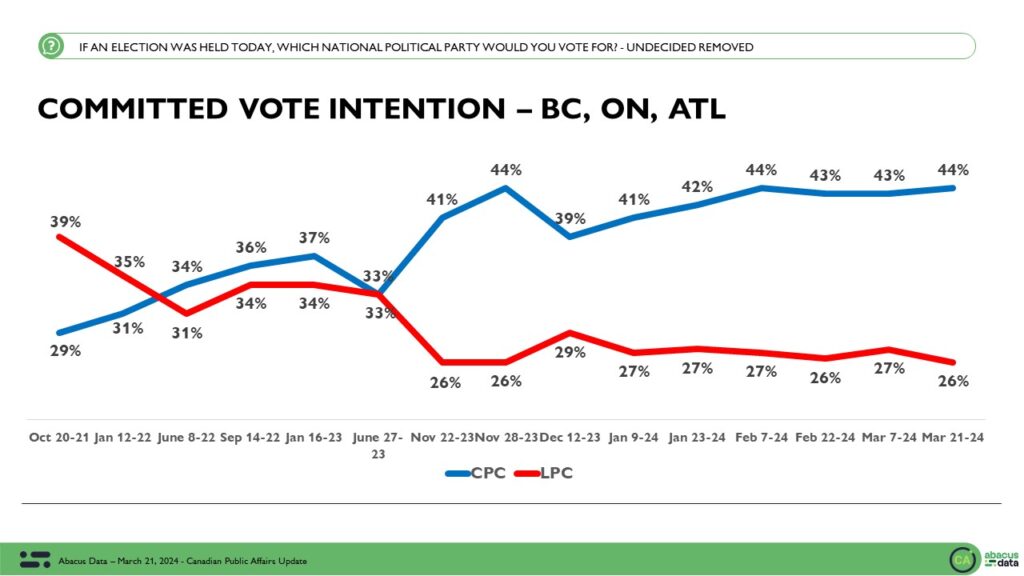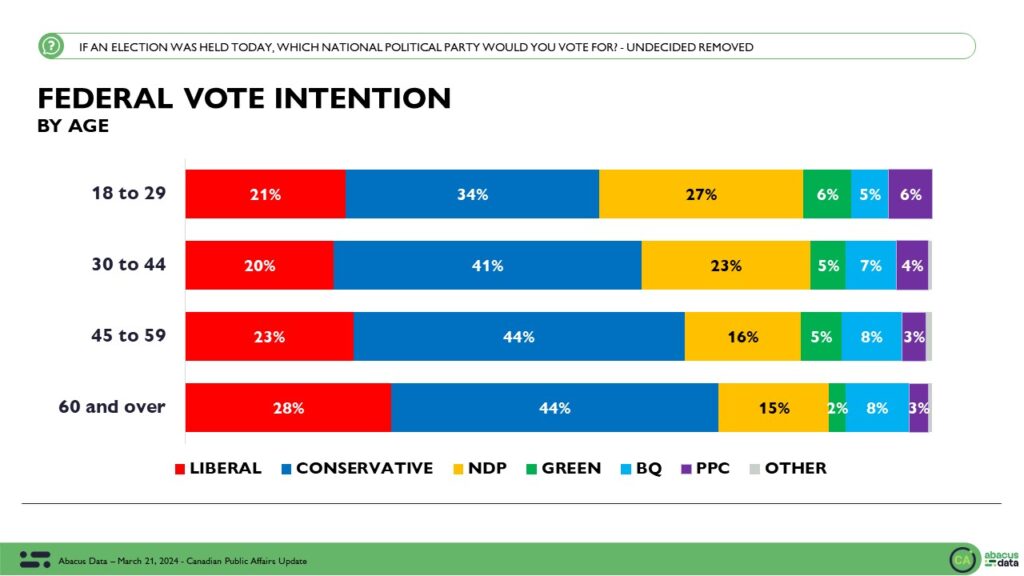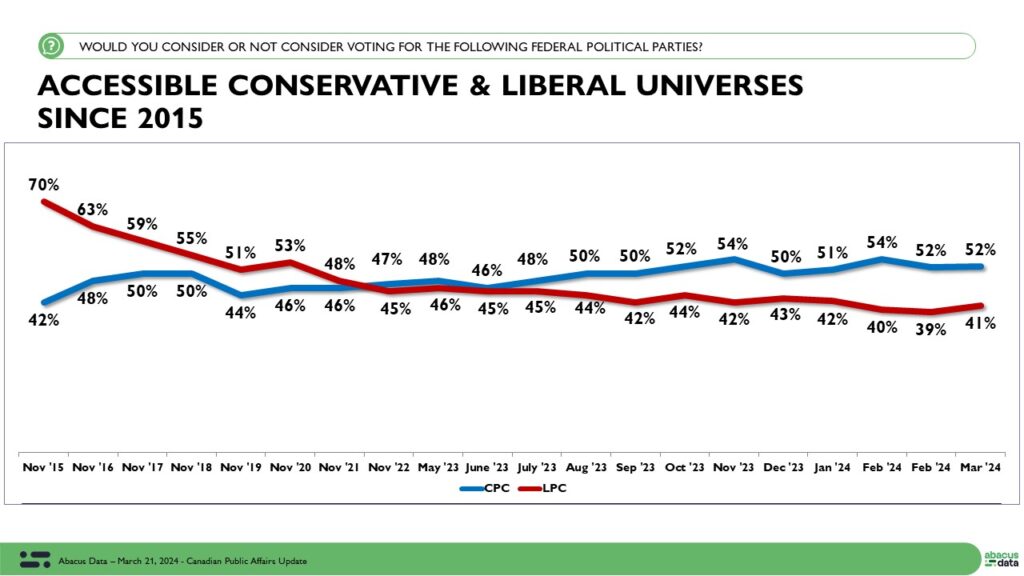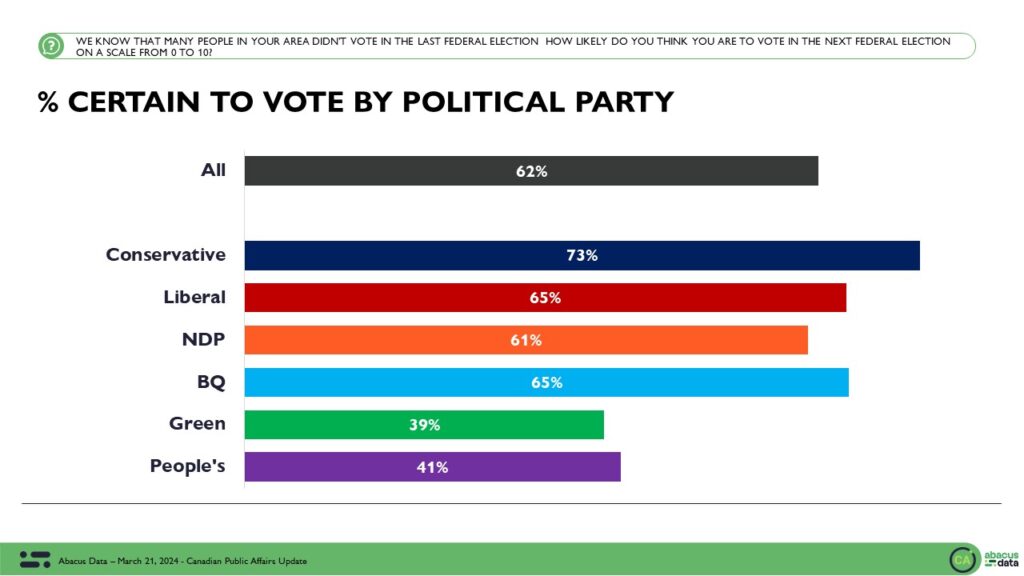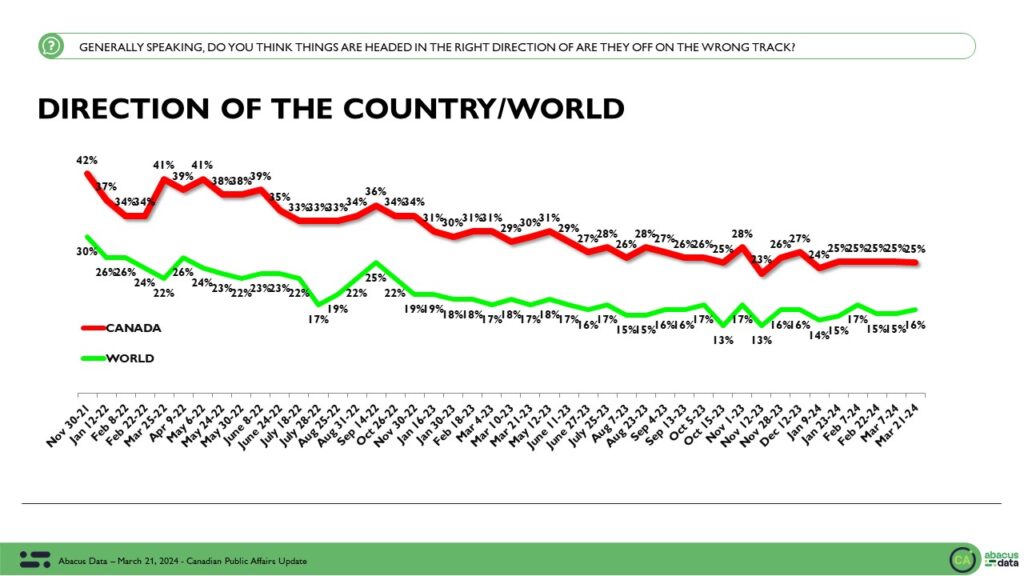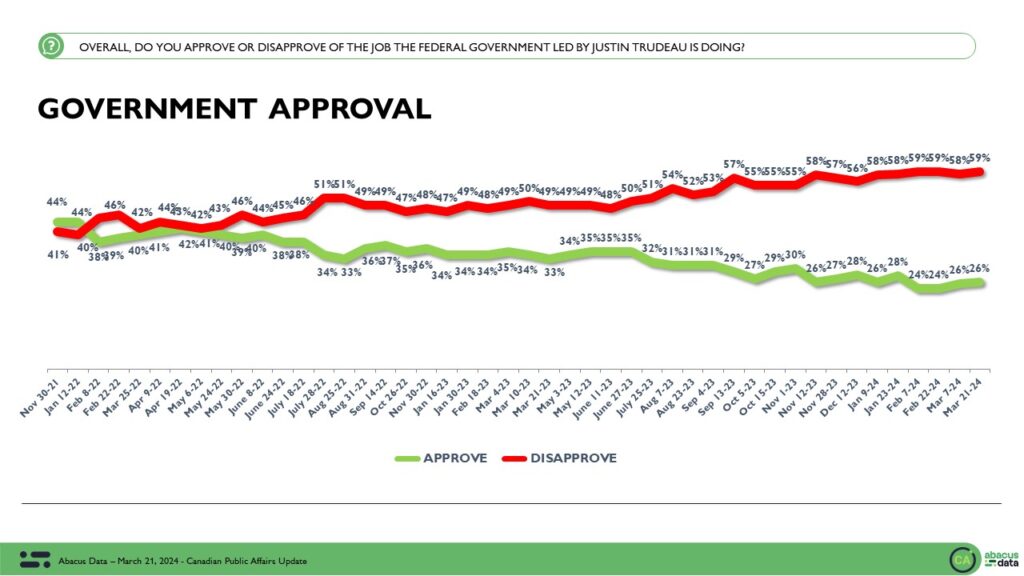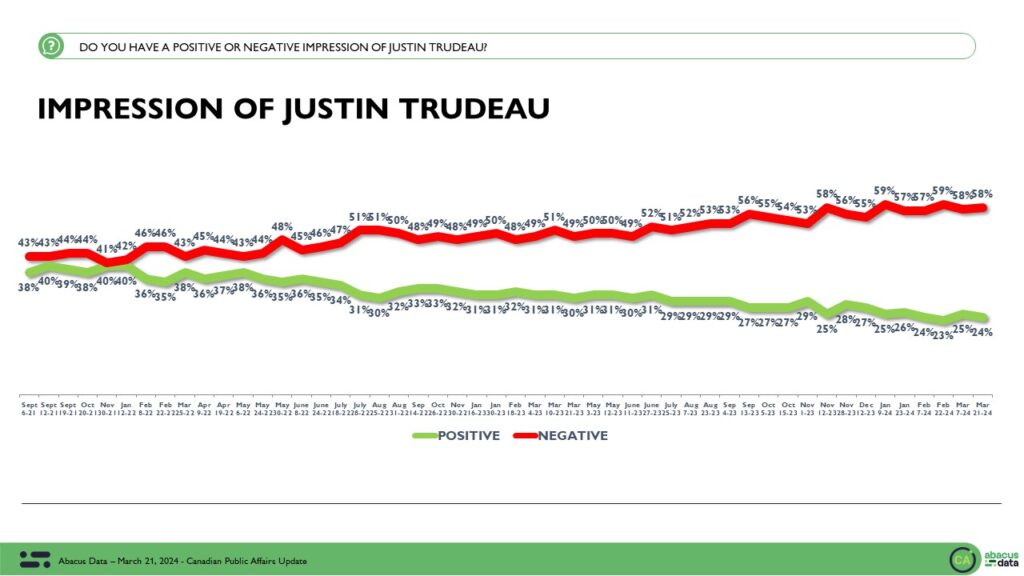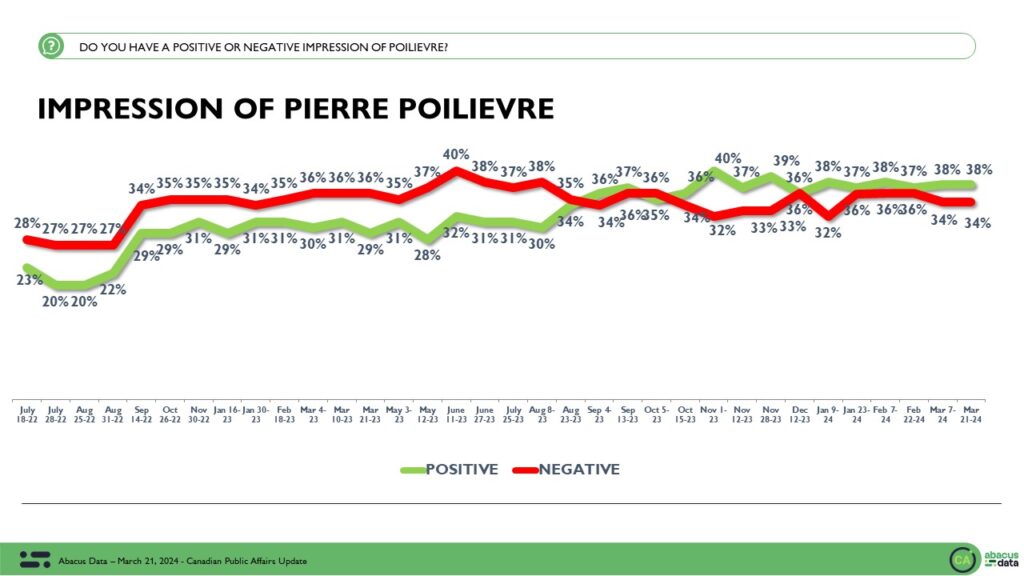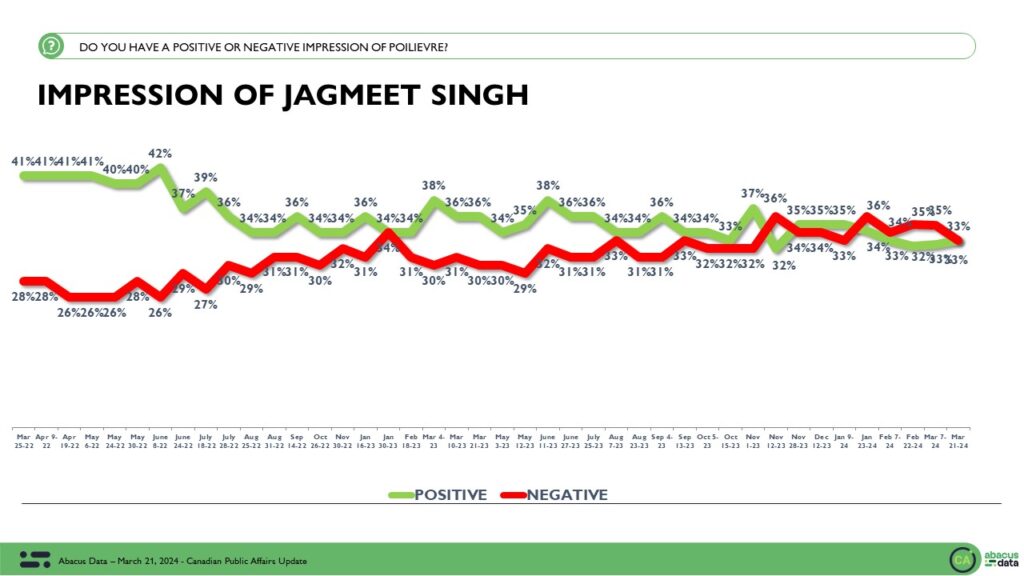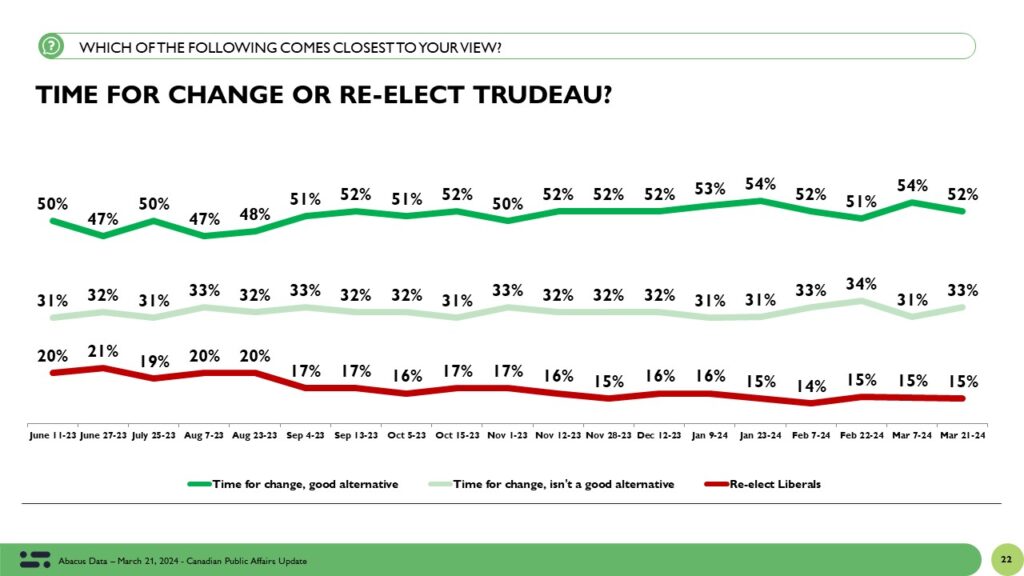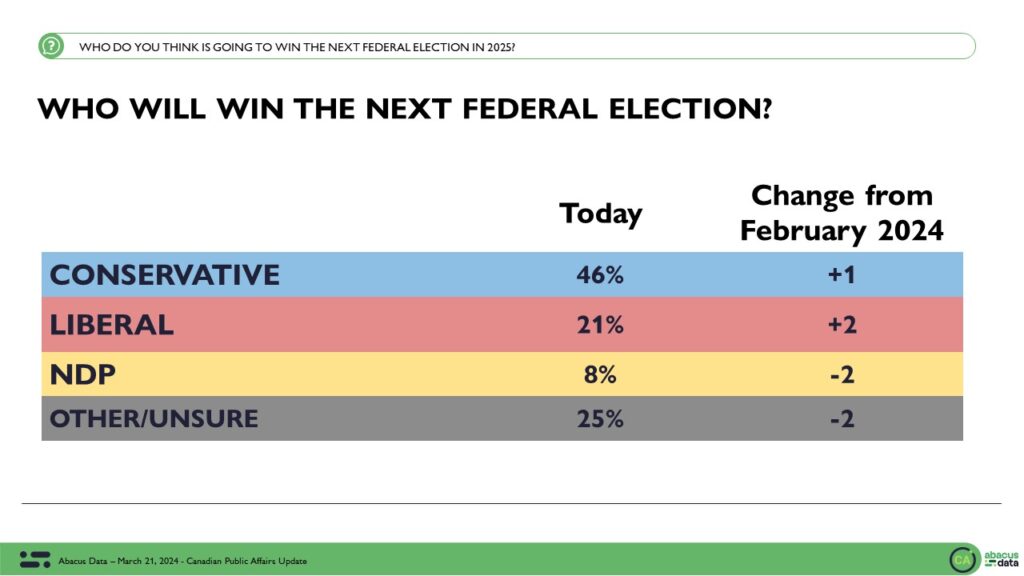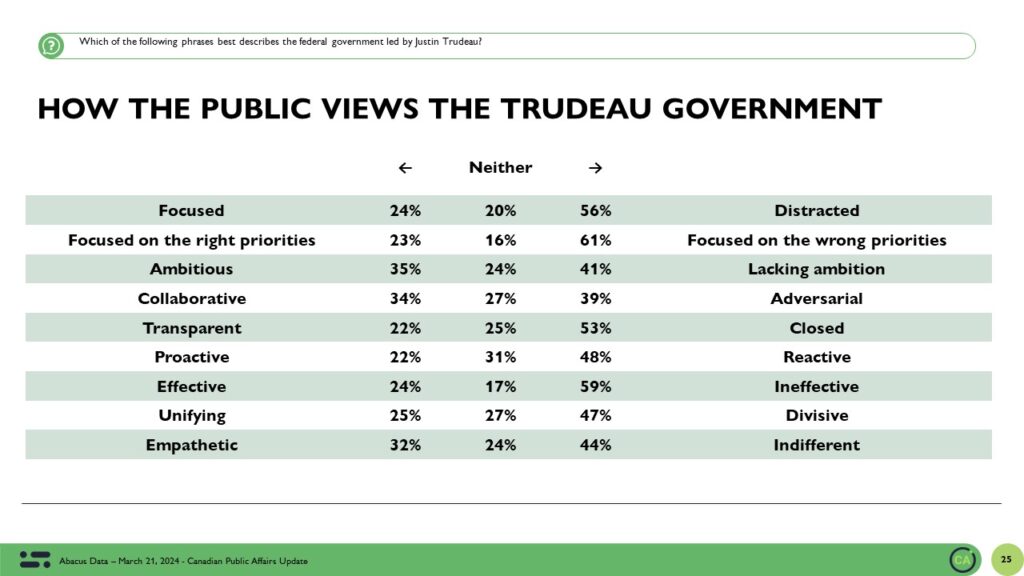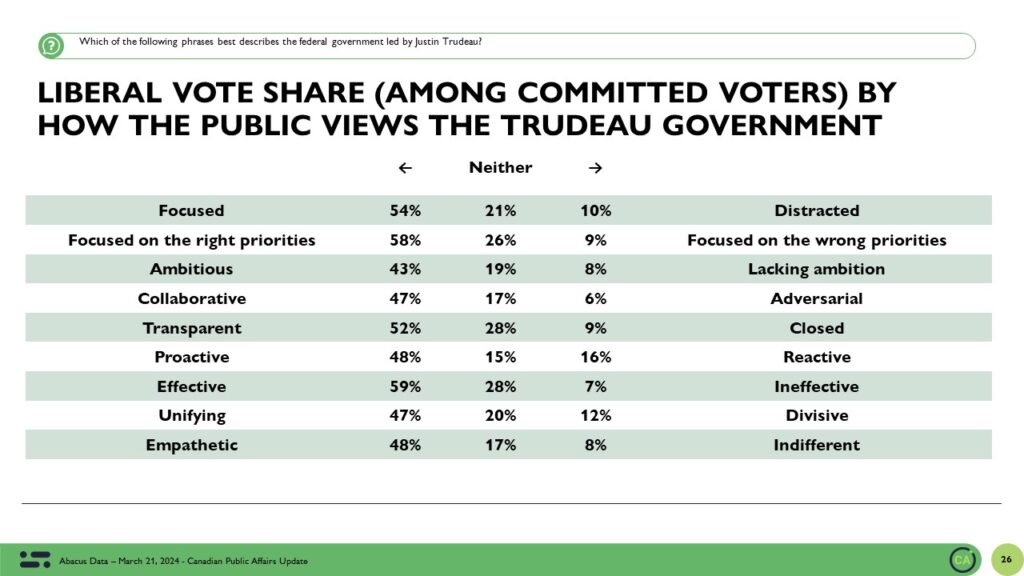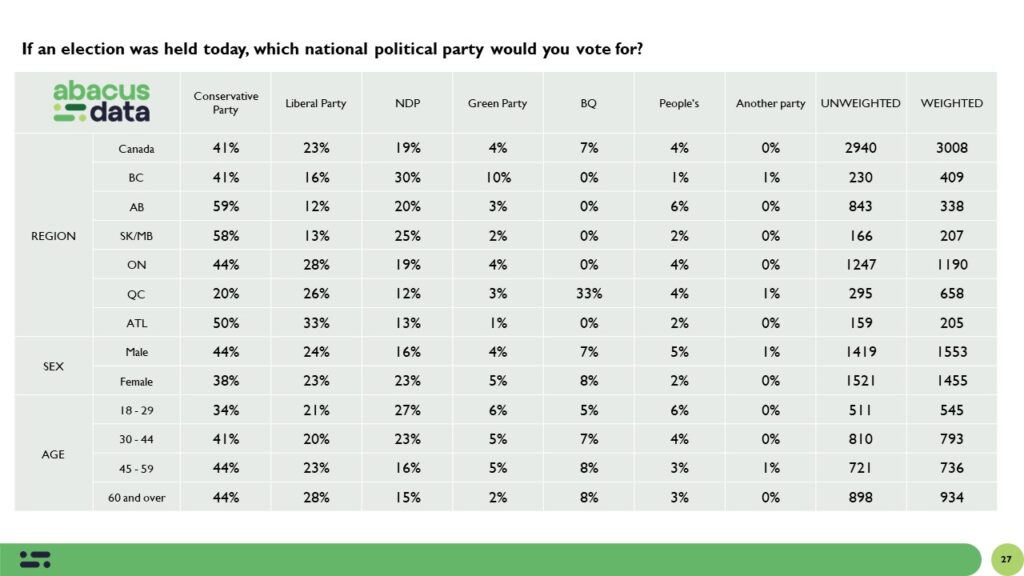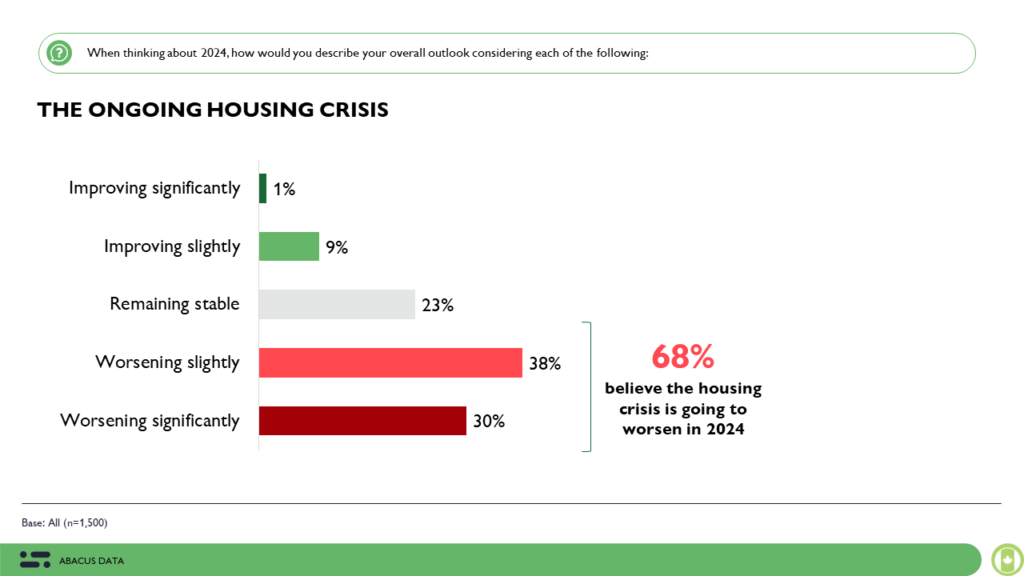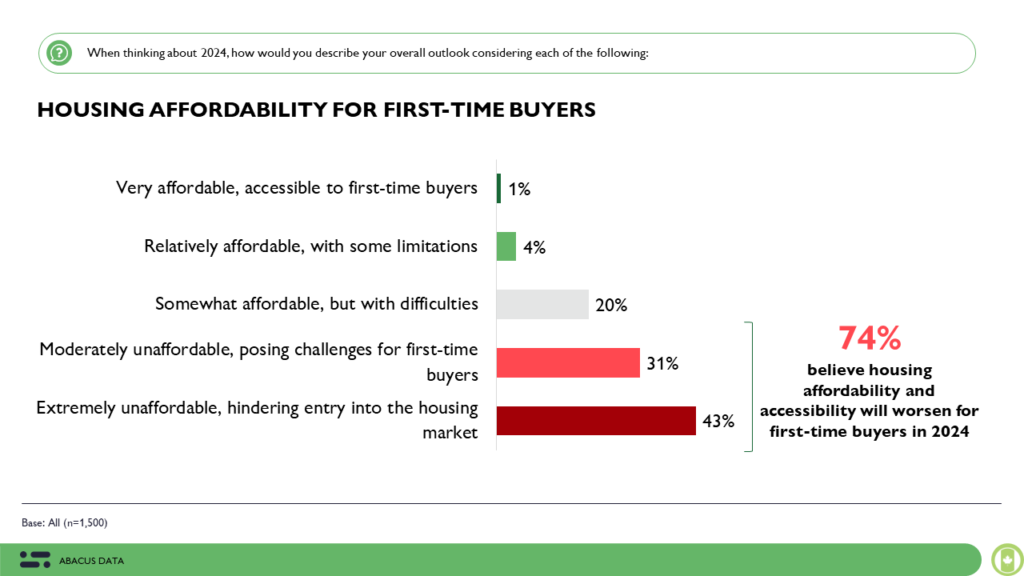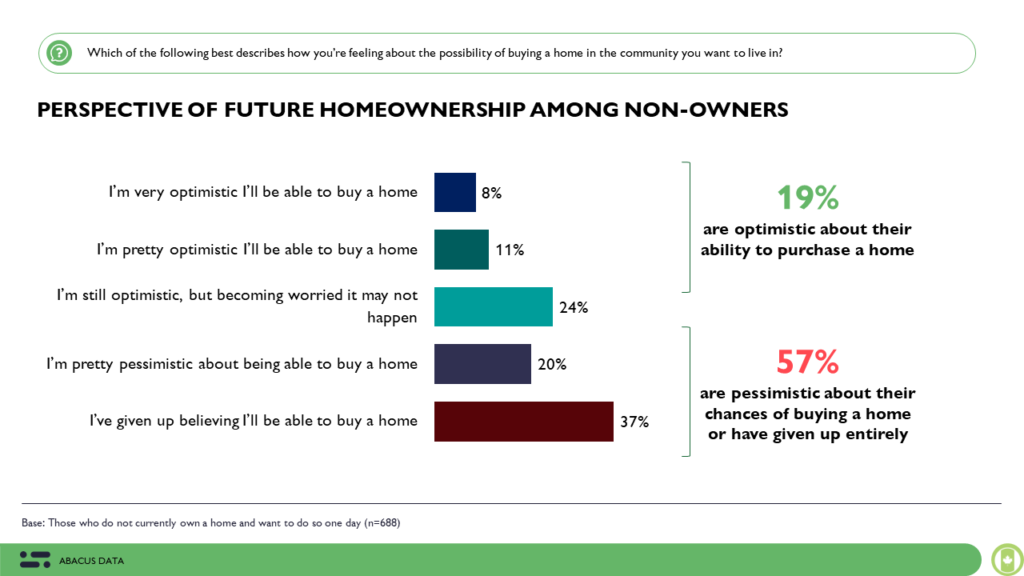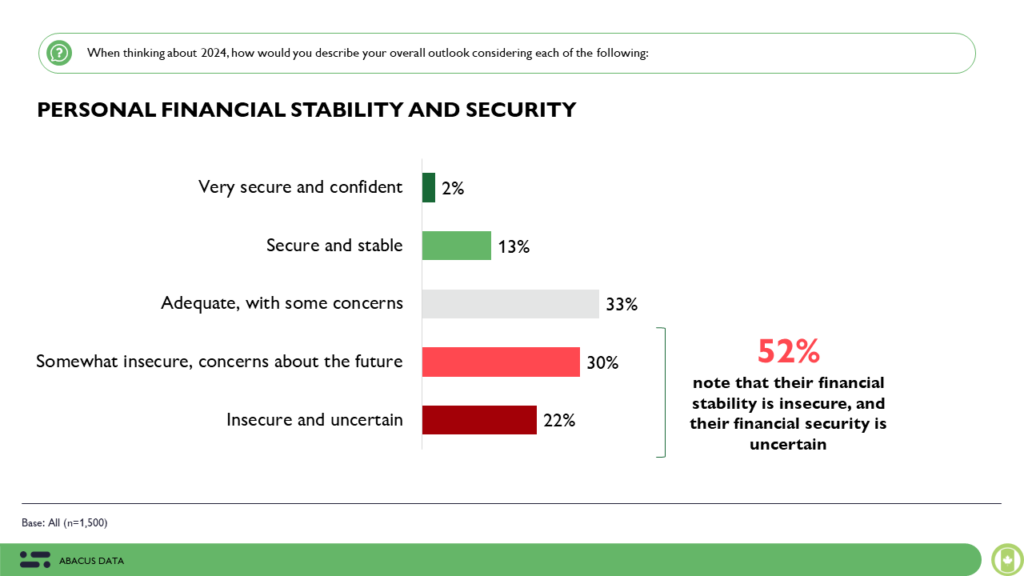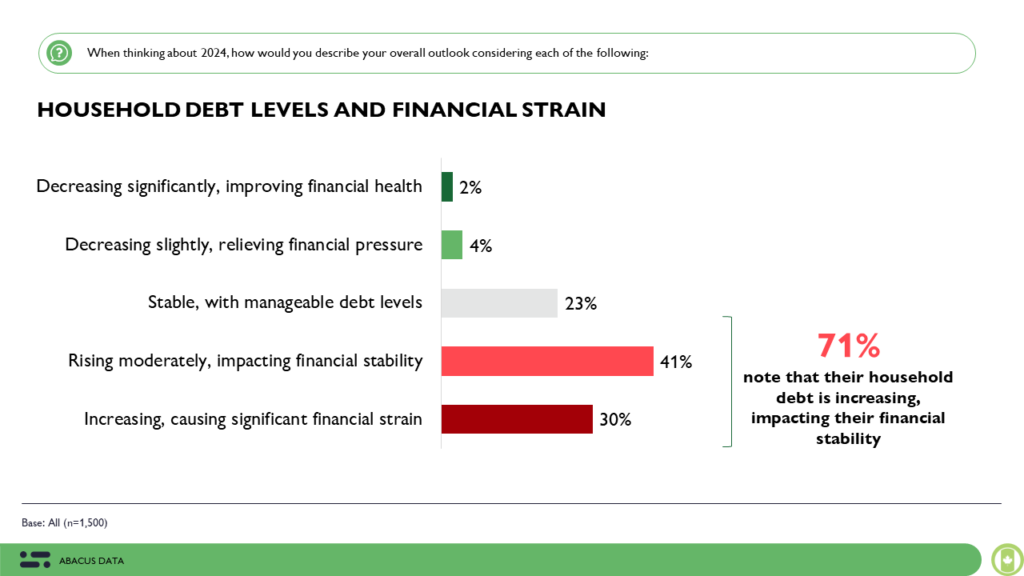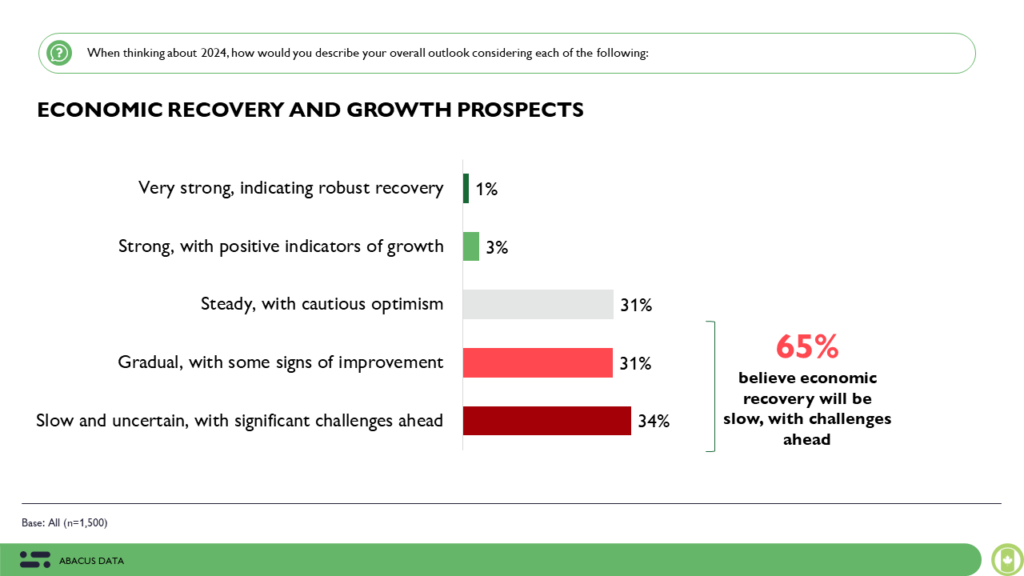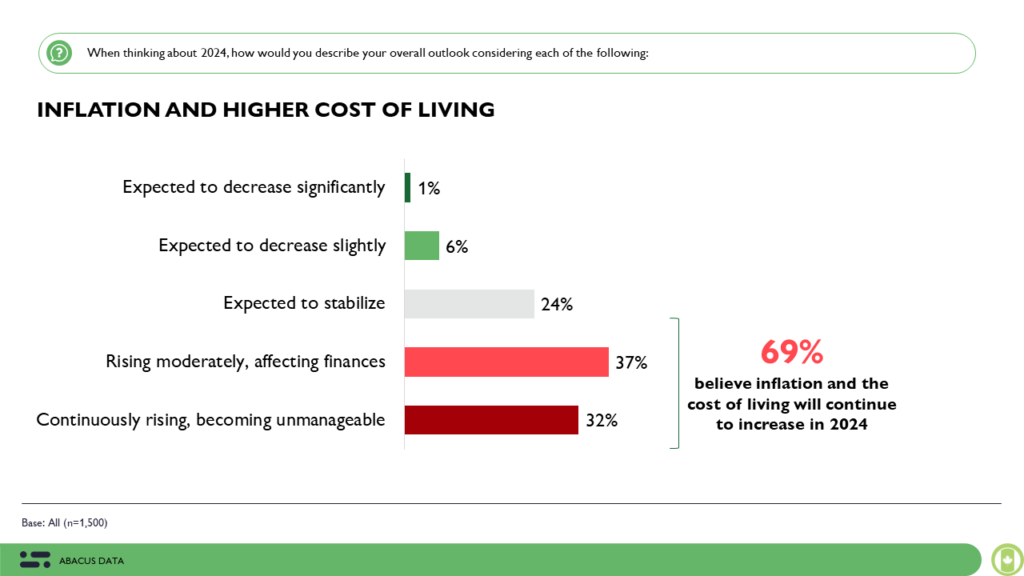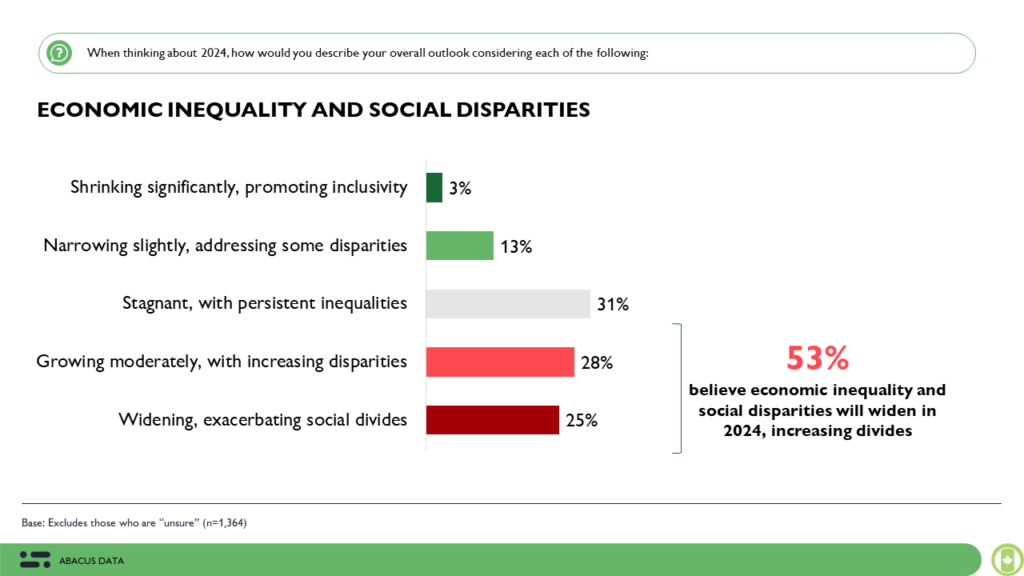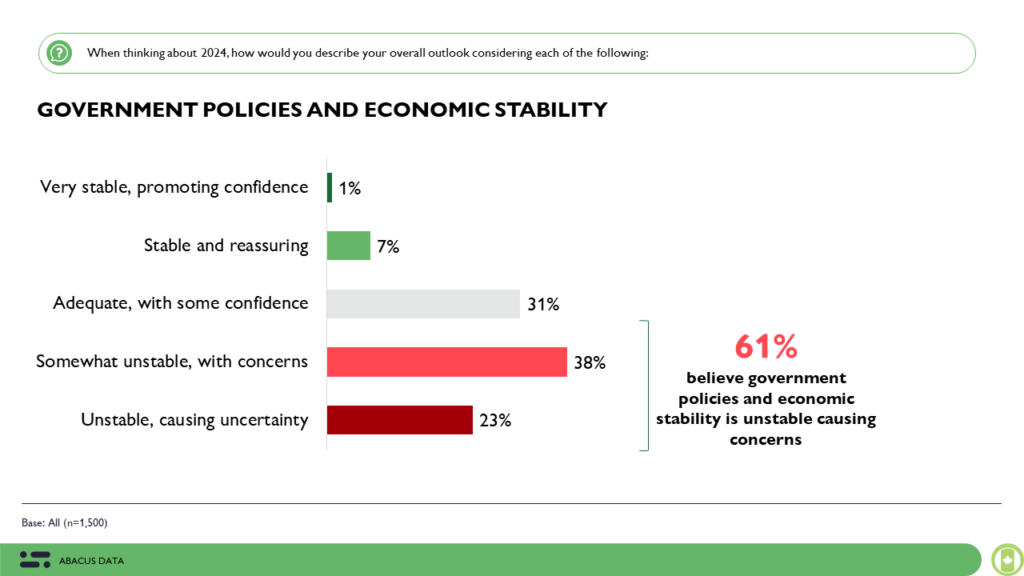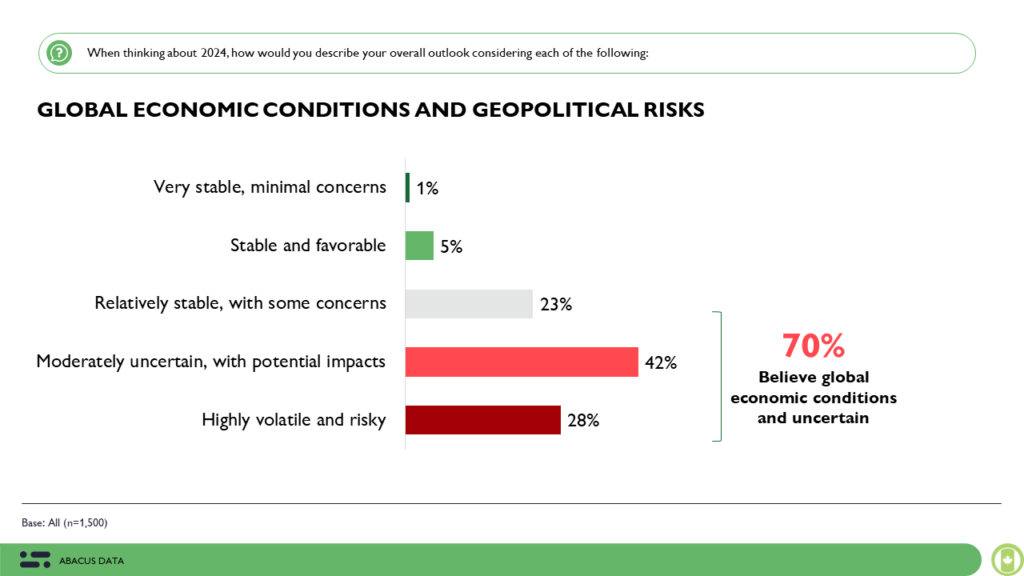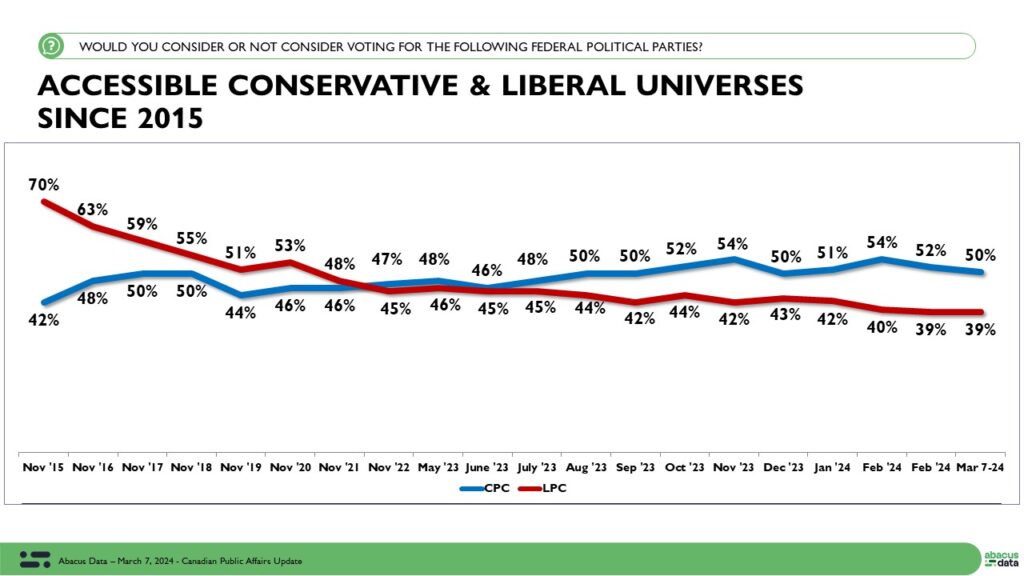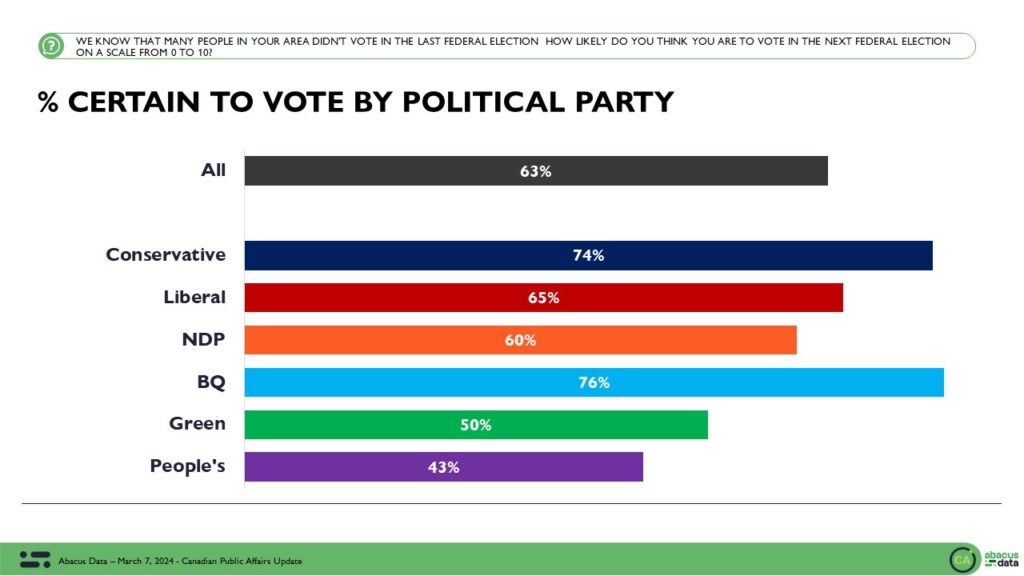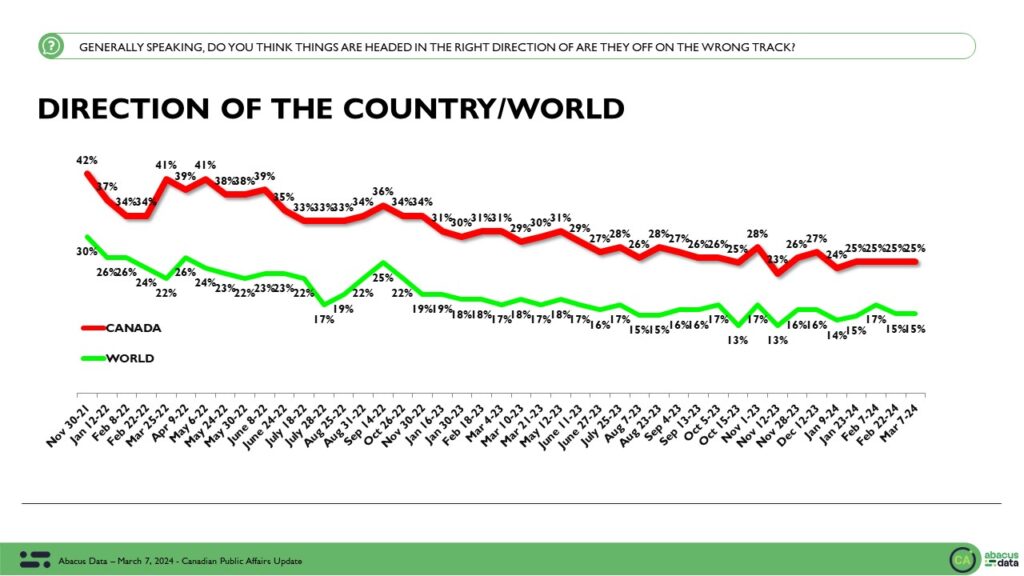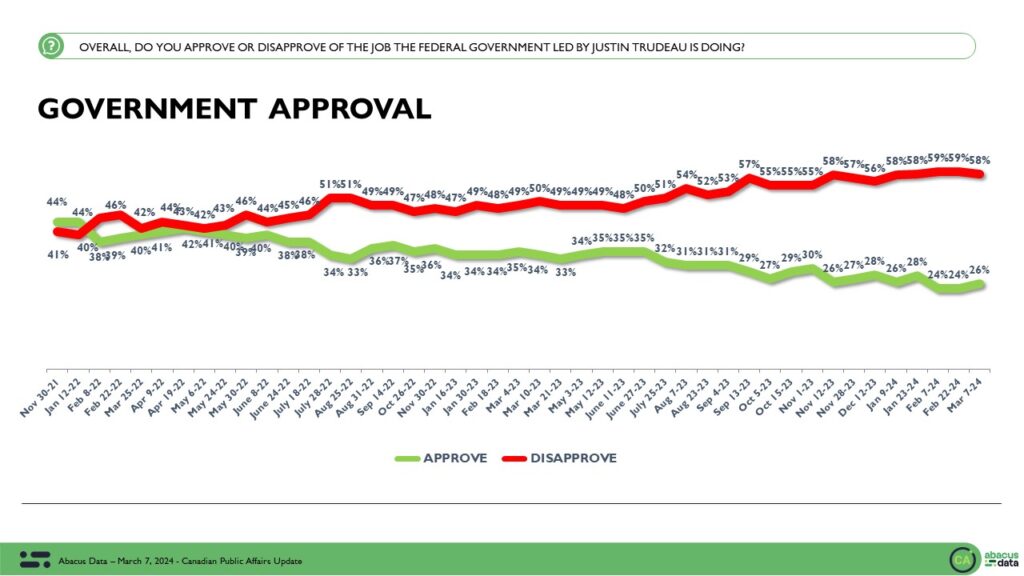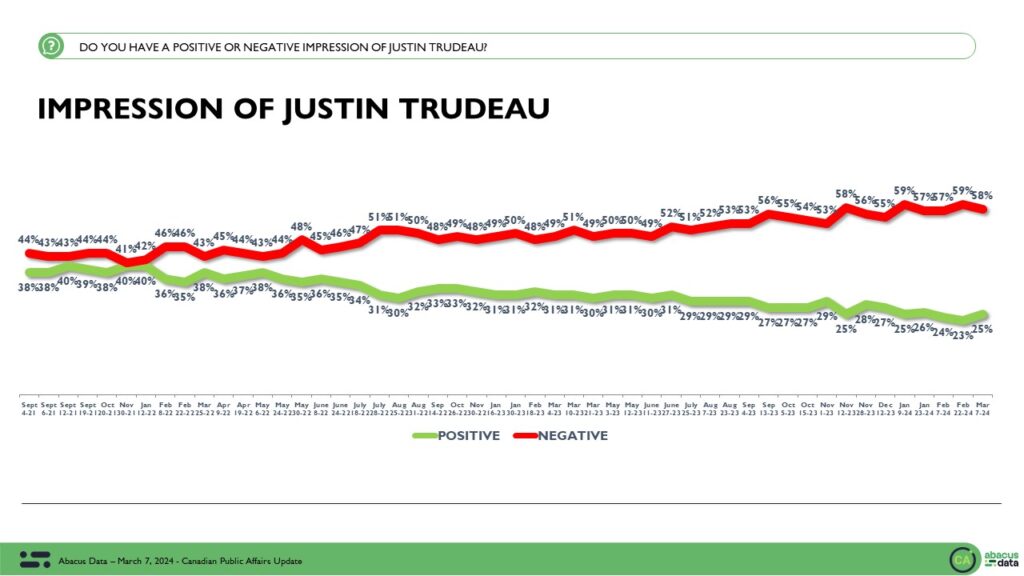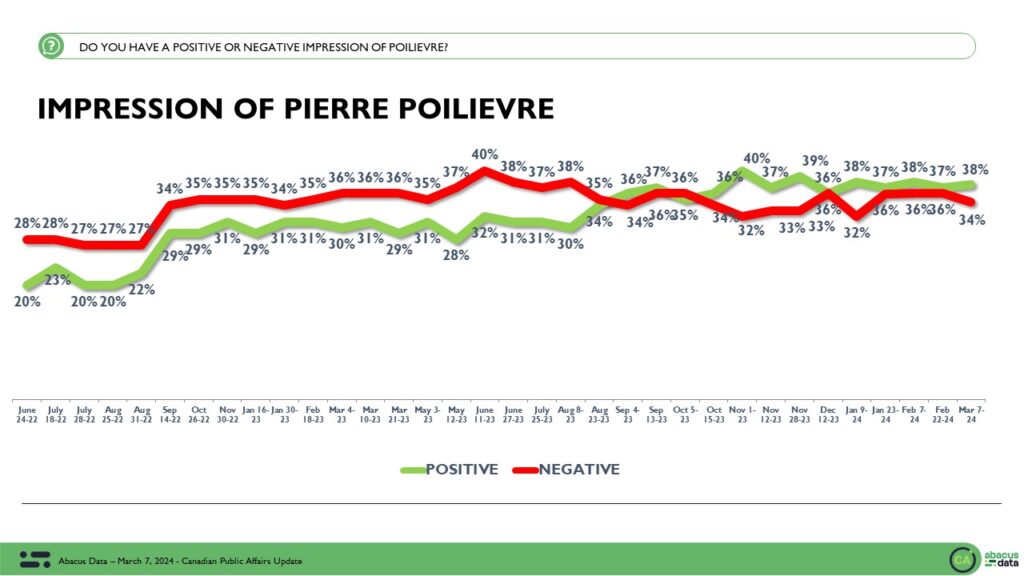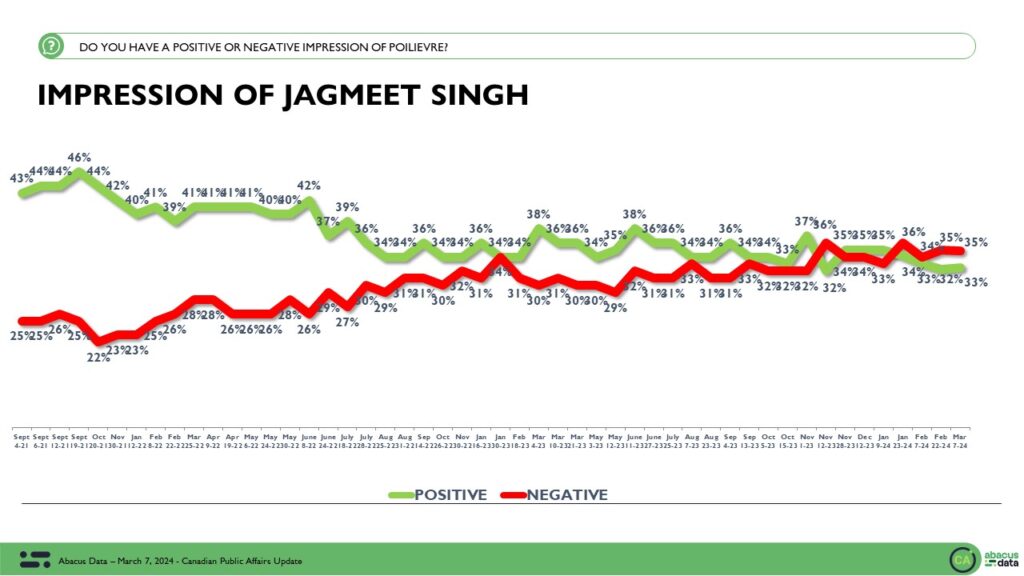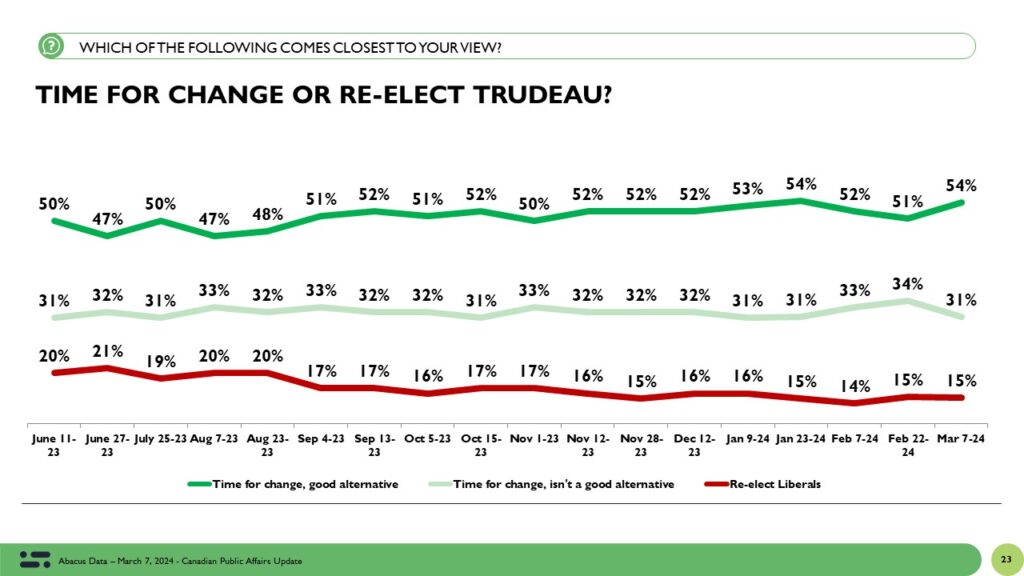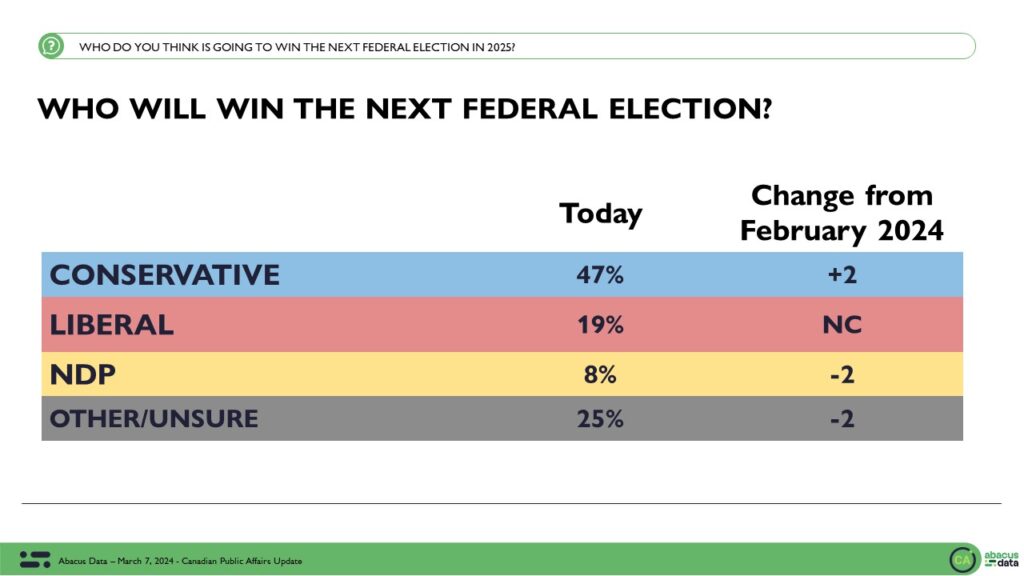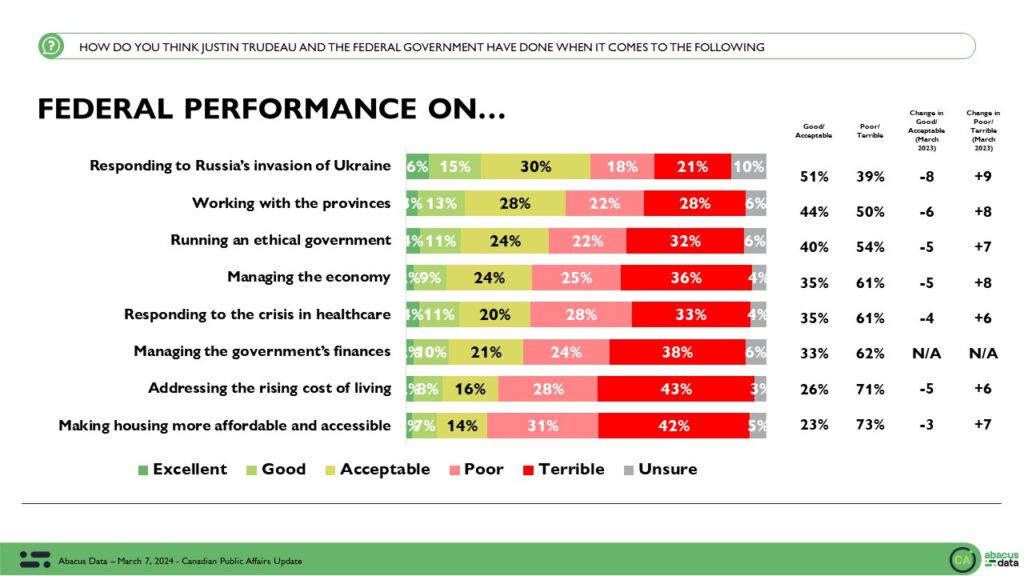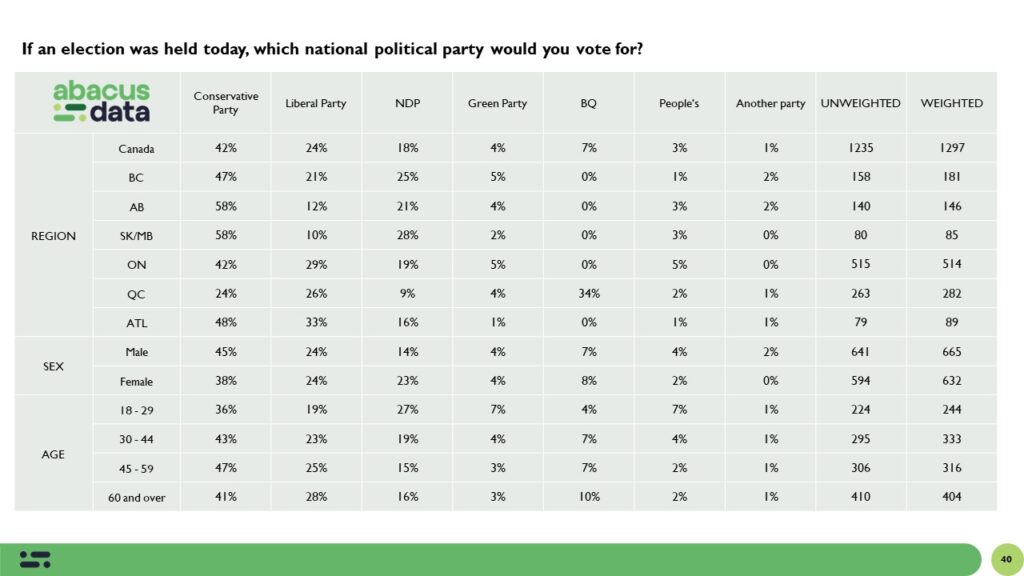Breaking NIMBYism: Many Canadians Open to Gentle Density
Between February 29 and March 6, 2024, Abacus Data conducted a nationwide survey with 1,500 Canadians aged 18 and above to investigate the housing market and perceptions of gentle density. The findings underscore the urgency for action in response to expected price hikes and availability worries. Moreover, attitudes towards gentle density challenge common NIMBYism beliefs, emphasizing the necessity for innovative governmental interventions and zoning reforms to address the housing crisis and support vulnerable communities.
Affordability and Accessibility Concerns
When examining the affordability and accessibility of housing in 2024, a significant number of Canadians continue to express serious concerns about the persistent housing crisis. Notably, 55% of Canadians foresee a continued rise in housing prices this year, while merely 13% expect a decline. Additionally, only 25% of Canadians are optimistic about an improvement in housing availability in the upcoming year, with 75% acknowledging that accessibility will either remain stagnant or further deteriorate. This pessimistic perspective continues to emphasize the necessity of addressing the challenges concerning housing affordability and accessibility.
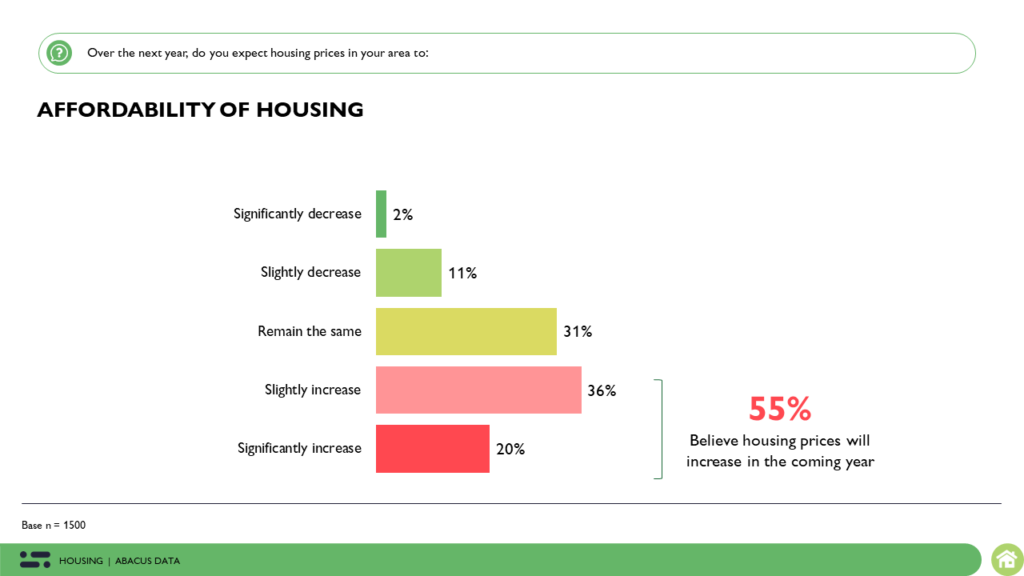
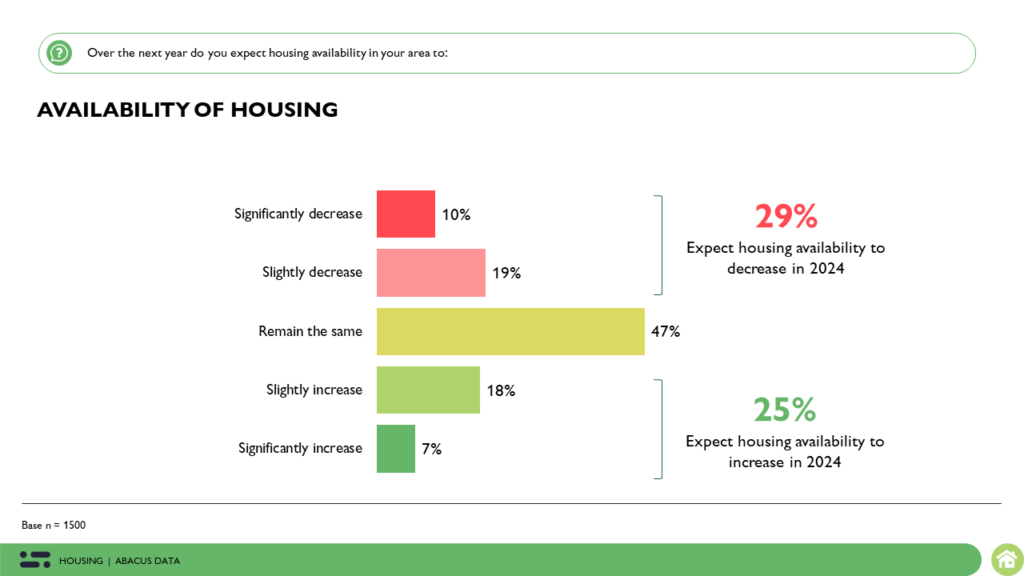
Support For Gentle Density
Just 15% of Canadians hold the belief that gentle density will not affect housing affordability in their region. In contrast, 16% believe it will strongly impact affordability, while 70% believe it will have impact hosing availability, although not a major one. This suggests that the majority perceive gentle density as beneficial, although they don’t consider it the sole solution to the housing crisis.

Although Canadians are generally more supportive of gentle density when it’s farther away from their immediate vicinity (with 53% supporting it within their province; 48% support it within their city), this support tends to diminish as the concept of gentle density approaches closer to their homes (with only 36% supporting it on their block). However, even with this trend, very few Canadians express strong opposition to the idea of gentle density, even at the local level. Specifically, only 29% of Canadians would oppose gentle density on their block, suggesting that the phenomenon of NIMBYism may not be as pervasive as commonly perceived.
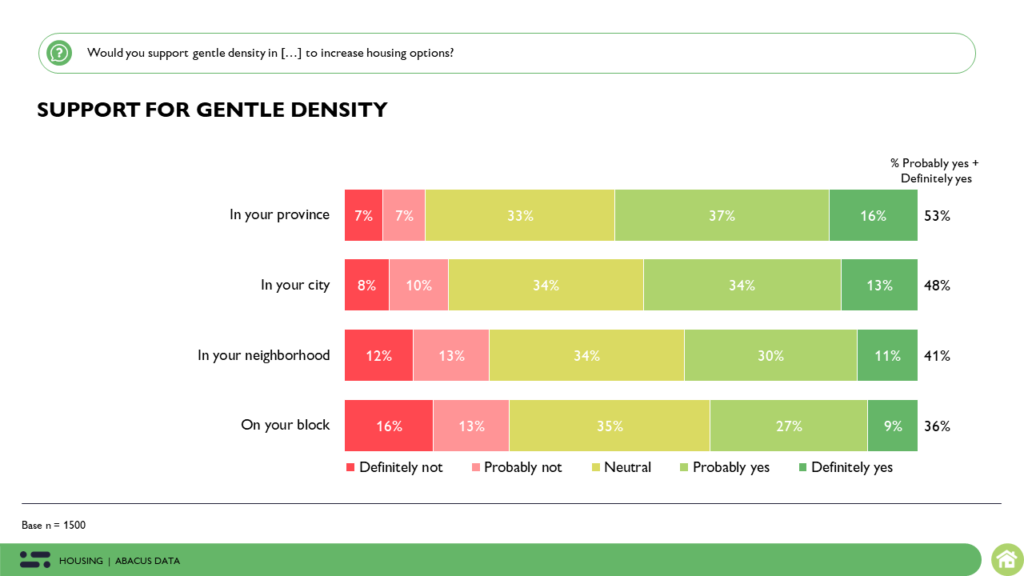
The strongest resistance to gentle density in one’s immediate vicinity stems from homeowners (36% oppose) and those aged 60 and above (36% oppose). Moreover, individuals intending to vote for the Conservative party (36% oppose) in the upcoming federal election exhibit stronger opposition to gentle density in their backyard compared to those aligning with the Liberal (25% oppose) and NDP parties (24% oppose). Provincially, residents of Alberta (34% oppose) and Manitoba/Saskatchewan (33% oppose) present the strongest opposition to gentle density in one’s own backyard. Despite this, the findings indicate that the majority of Canadians hold a neutral or supportive stance when contemplating gentle density development “in their backyard”.
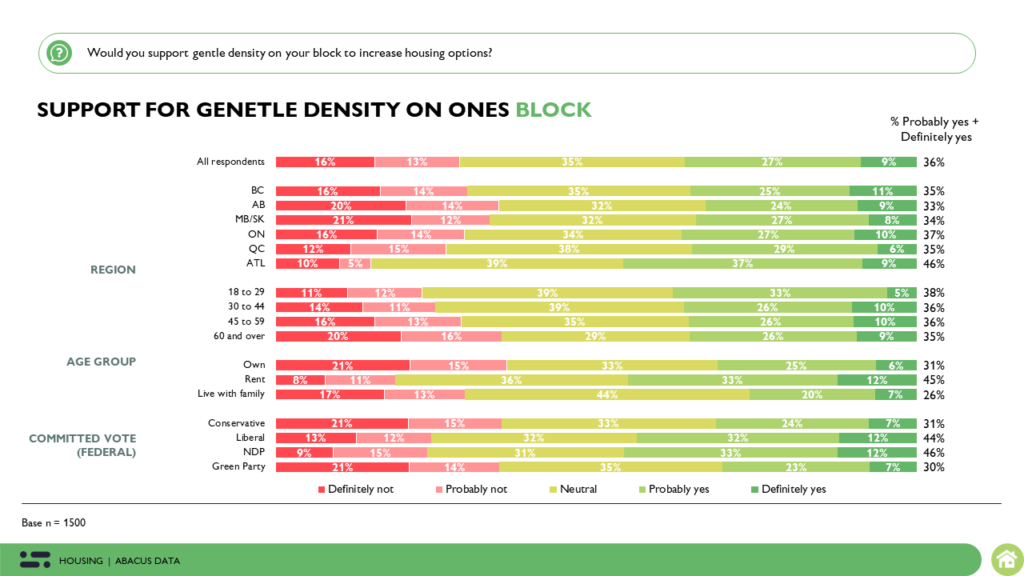
Perceived Benefits of Gentle Density
Canadians highlight several benefits of gentle density, including improved access to affordable housing (55%), better use of existing infrastructure (39%), and reduced urban sprawl with preserved green spaces (31%). Additionally, they see advantages in promoting economic growth and local business vitality (25%), as well as creating more walkable and bike-friendly neighbourhoods, increasing public transportation availability, and enhancing community interactions. These insights illustrate Canadians’ awareness of the diverse advantages of gentle density, from addressing housing affordability to fostering sustainable development and stronger community connections.
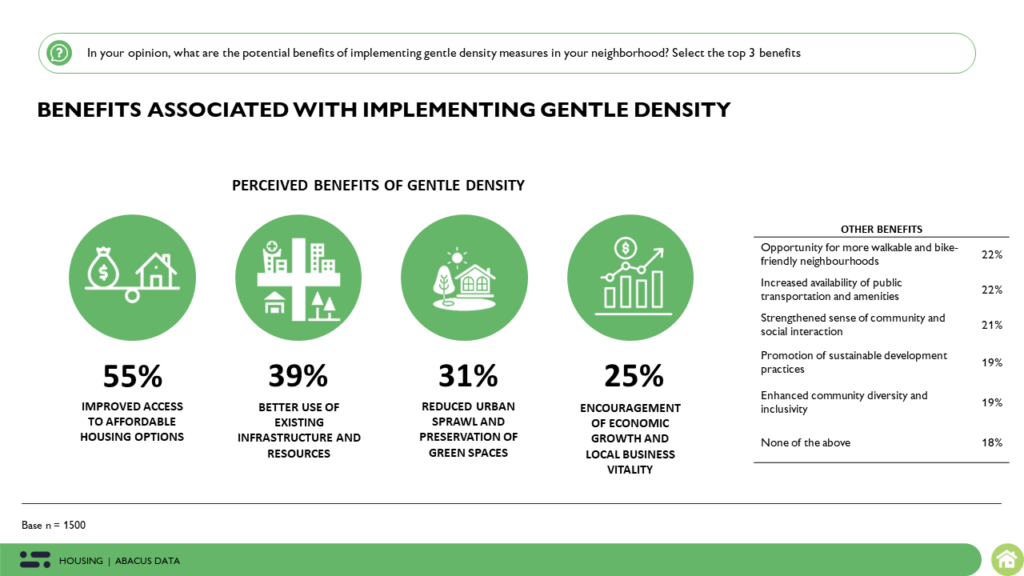
Perceived Drawbacks of Gentle Density
While acknowledging potential benefits, Canadians express concerns about gentle density, including overcrowding and reduced privacy (46%), increased traffic and congestion (41%), and higher noise levels (35%). Additionally, 32% worry about potential crime increases in their neighborhood, and 1 in 4 are apprehensive about impacts on property values, loss of neighbourhood character, and overdevelopment with a lack of green spaces. These concerns highlight the need to address community apprehensions and ensure a balanced approach to urban development.
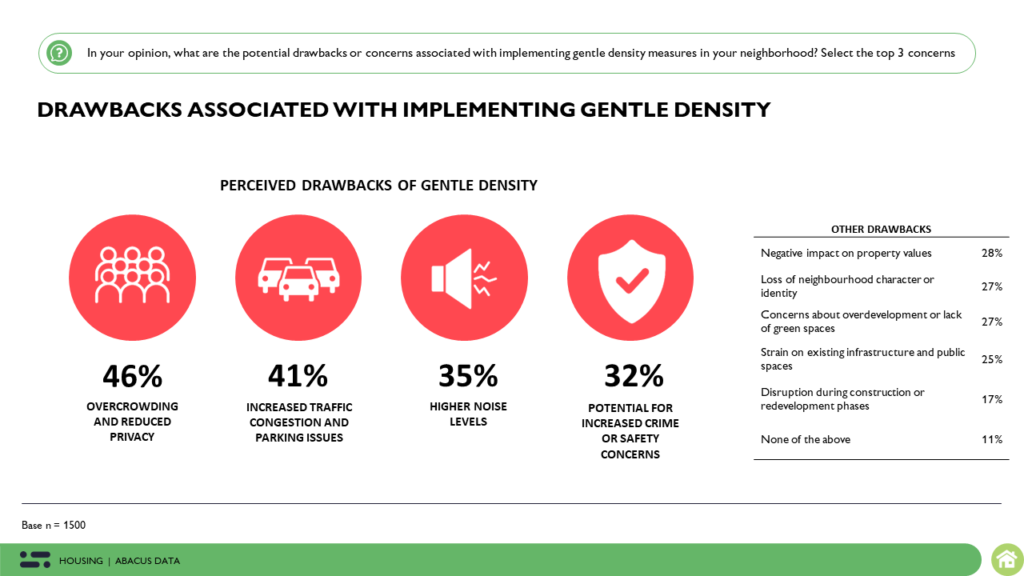
The Upshot
The current data highlights Canadians’ positive views on gentle density, emphasizing its potential to tackle housing affordability, promote sustainability, and enhance community well-being. This underscores the need for government to consider implementing policies supporting gentle density initiatives to address pressing housing affordability, promote sustainable development, and strengthen community vitality.
Contrary to expectations, there is minimal opposition to gentle density, even locally, challenging the widespread belief in NIMBYism. This presents an opportunity for collaborative action between government and communities to enact effective policies and initiatives supporting gentle density.
Instead of assuming Canadians aren’t interested in gentle density, it’s crucial to listen to and address their concerns regarding overcrowding, traffic congestion, and safety. By doing so, government at all levels can help those who oppose this approach better understand its potential benefits for communities. Policymakers must listen to these concerns and work together on innovative solutions to tackle the housing crisis while maintaining the unique character and livability of neighbourhoods.
Overall, these findings continue demonstrate the urgent needs to people to come together and do something about the housing crisis in Canada. While some may be opposed to the idea of gentle density, it is an approach that offers a way to make housing more affordable and accessible while also making our cities more sustainable. It’s not just about building more houses; it’s about creating neighbourhoods where everyone feels like they belong. It’s about keeping the heart and soul of our communities alive while making sure everyone has a place to call home. And you know what? A lot of Canadians are on board with that.
Methodology
The survey was conducted with 1,500 Canadian adults from February 28 to March 6, 2024. A random sample of panelists were invited to complete the survey from a set of partner panels based on the Lucid exchange platform. These partners are typically double opt-in survey panels, blended to manage out potential skews in the data from a single source.
The margin of error for a comparable probability-based random sample of the same size is +/- 2.53%, 19 times out of 20.
The data were weighted according to census data to ensure that the sample matched Canada’s population according to age, gender, educational attainment, and region.
This survey was paid for by Abacus Data Inc.
Abacus Data follows the CRIC Public Opinion Research Standards and Disclosure Requirements that can be found here: https://canadianresearchinsightscouncil.ca/standards/
ABOUT ABACUS DATA
We are Canada’s most sought-after, influential, and impactful polling and market research firm. We are hired by many of North America’s most respected and influential brands and organizations.
We use the latest technology, sound science, and deep experience to generate top-flight research-based advice to our clients. We offer global research capacity with a strong focus on customer service, attention to detail, and exceptional value.
And we are growing throughout all parts of Canada and the United States and have capacity for new clients who want high quality research insights with enlightened hospitality.
Our record speaks for itself: we were one of the most accurate pollsters conducting research during the 2021 Canadian election following up on our outstanding record in the 2019, 2015, and 2011 federal elections.
Contact us with any questions.
Find out more about how we can help your organization by downloading our corporate profile and service offering.

